Supplements That May Help Reduce Inflammation Naturally
According to the World Health Organization, chronic diseases—many linked to persistent inflammation—account for over 70% of global deaths each year. The insidious onset and late detection of chronic inflammation present significant health challenges worldwide. This low-grade, persistent inflammation not only burdens healthcare systems but also impacts quality of life. Effective inflammation management is crucial for preventing serious conditions like heart disease, diabetes, and autoimmune disorders. Understanding natural strategies, including dietary supplements, offers promising avenues for supporting overall well-being and combating the global impact of chronic inflammation.
1. Turmeric (Curcumin)
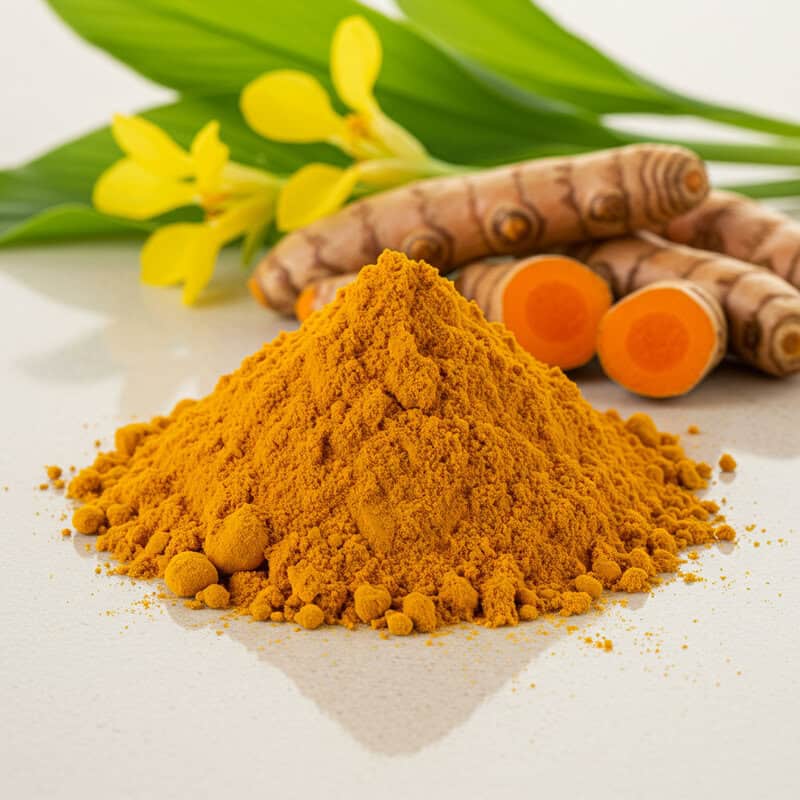
Turmeric is a golden-yellow spice widely recognized for its potent anti-inflammatory properties, largely attributed to its active compound, curcumin. Research has shown that curcumin inhibits key molecules involved in inflammation, such as nuclear factor-kappa B (NF-κB) and cyclooxygenase-2 (COX-2), thereby blocking inflammatory signaling pathways at a cellular level (NCBI). This mechanism helps reduce the production of inflammatory cytokines and mediators, making turmeric a popular natural remedy for conditions like arthritis and muscle soreness.
Incorporating turmeric into the diet is easy—common examples include adding it to curries, soups, smoothies, or teas. For optimal absorption, it’s best paired with black pepper, which contains piperine, a compound shown to enhance curcumin’s bioavailability by up to 2,000% (study link). Turmeric supplements are also widely available, often formulated with added piperine for improved efficacy.
While generally safe, high doses of curcumin may cause gastrointestinal discomfort or interact with blood thinners. It’s advisable to consult with a healthcare provider before starting supplementation, especially for individuals with gallbladder issues or those on medication.
2. Omega-3 Fatty Acids (Fish Oil)
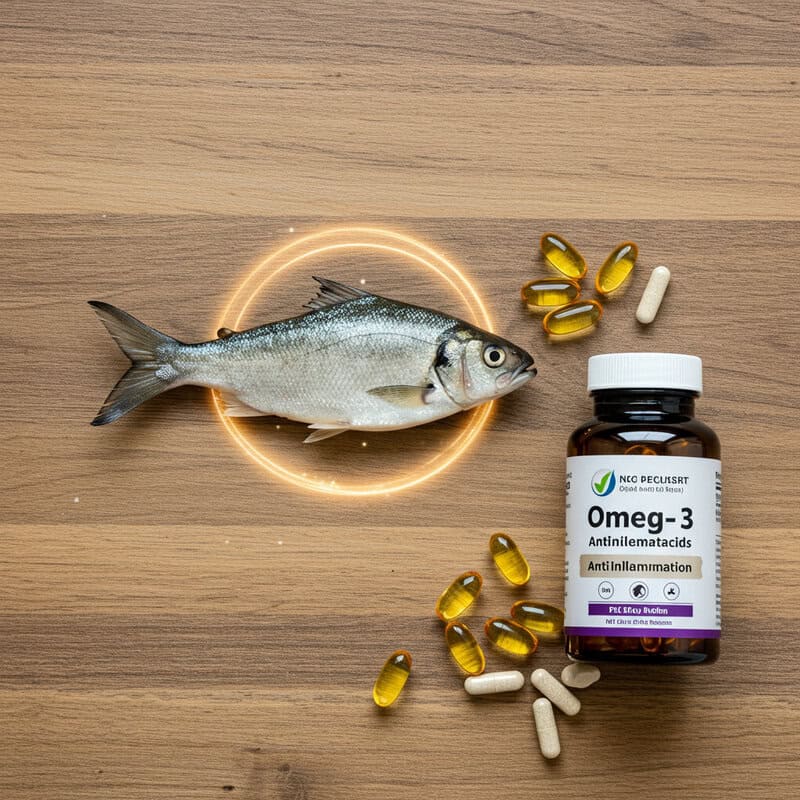
Omega-3 fatty acids, primarily found in fish oil, are well-documented for their ability to reduce inflammation throughout the body. EPA (eicosapentaenoic acid) and DHA (docosahexaenoic acid) are the key omega-3s that dampen the production of pro-inflammatory cytokines and eicosanoids. Numerous studies demonstrate that supplementing with omega-3s can lower inflammatory markers such as C-reactive protein (CRP) and interleukin-6 (IL-6), thereby supporting joint, cardiovascular, and cognitive health (NCBI).
In contrast, typical Western diets are rich in omega-6 fatty acids, often from processed seed oils, which can promote inflammation when consumed in excess and not balanced with omega-3 intake. The ideal omega-6 to omega-3 ratio is thought to be close to 1:1, whereas many Western diets range from 10:1 to 20:1, favoring inflammation (Harvard Health).
When choosing a fish oil supplement, select a high-quality, purified product free from heavy metals and contaminants. Monitor for possible side effects, such as digestive upset or increased bleeding risk, especially if taking blood-thinning medications. Consulting a healthcare professional is recommended before beginning supplementation.
3. Ginger
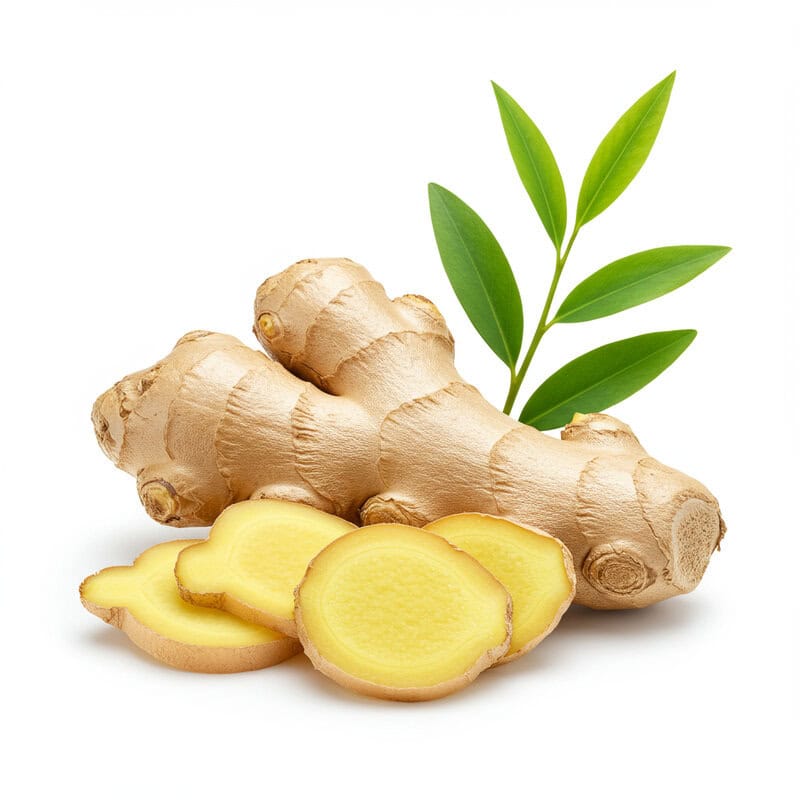
Ginger is a widely used spice and medicinal root known for its powerful anti-inflammatory effects. The compounds primarily responsible for these benefits are gingerols and shogaols, which have been shown to suppress the production of pro-inflammatory cytokines and inhibit enzymes like cyclooxygenase (COX) and lipoxygenase (LOX) involved in the inflammatory response (NCBI). These mechanisms make ginger a natural option for managing inflammation associated with conditions like osteoarthritis, muscle soreness, and even metabolic syndrome.
Ginger can be easily incorporated into daily meals—fresh or ground, it’s commonly used in teas, stir-fries, soups, and smoothies. Traditional recipes like ginger tea or pickled ginger also provide enjoyable ways to reap its benefits. For those seeking more concentrated effects, ginger supplements are available in capsules, extracts, or tincture forms.
To include ginger regularly, add freshly grated ginger to salads, marinades, or baked goods, or steep slices in hot water for a comforting tea. While generally safe, high intakes may cause mild digestive discomfort in some individuals. For people on blood thinners or with gallbladder issues, consulting a healthcare provider before supplementing is advisable.
4. Green Tea Extract (EGCG)
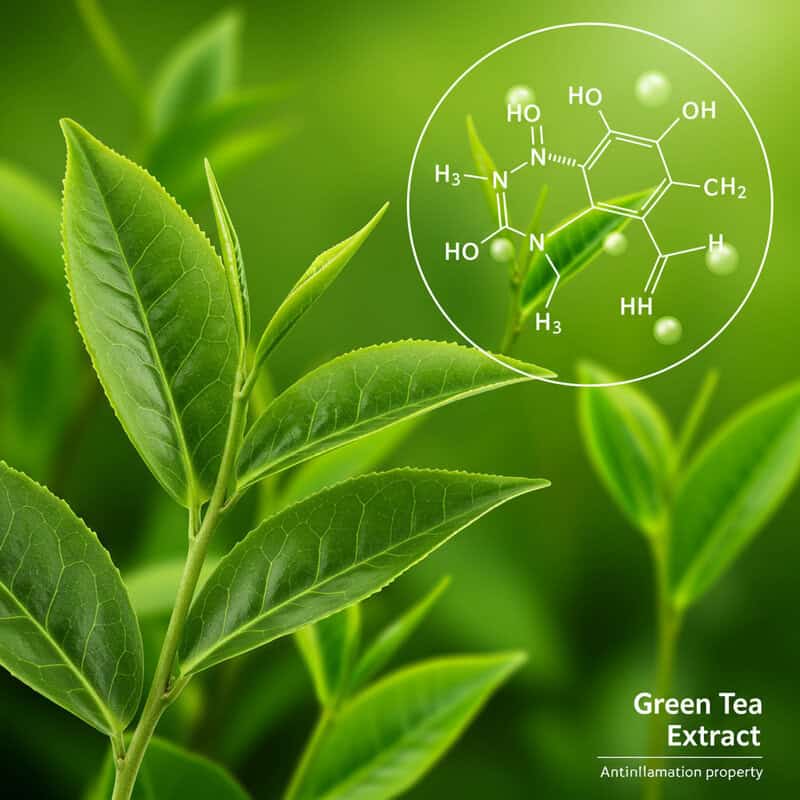
Green tea extract is celebrated for its high concentration of epigallocatechin gallate (EGCG), a polyphenol with potent anti-inflammatory properties. EGCG has been shown to inhibit the expression of inflammatory mediators such as tumor necrosis factor-alpha (TNF-α) and interleukin-6 (IL-6), and to block the activation of NF-κB, a protein complex that regulates immune response and inflammation at the cellular level (NCBI). Through these mechanisms, EGCG helps reduce the risk of chronic diseases linked to persistent inflammation, including cardiovascular disease and certain cancers.
Population studies suggest that individuals who consume green tea regularly tend to have lower markers of inflammation and reduced incidence of inflammatory diseases (NCBI). In Japan and China, where green tea consumption is a daily ritual, rates of inflammatory disorders are often lower compared to Western countries.
Green tea extract is available in capsule, powder, or liquid form. For practical inclusion, drinking two to three cups of freshly brewed green tea daily offers both EGCG and additional antioxidants. Those opting for supplements should choose standardized extracts and be mindful of potential interactions with certain medications and caffeine sensitivity.
5. Boswellia Serrata
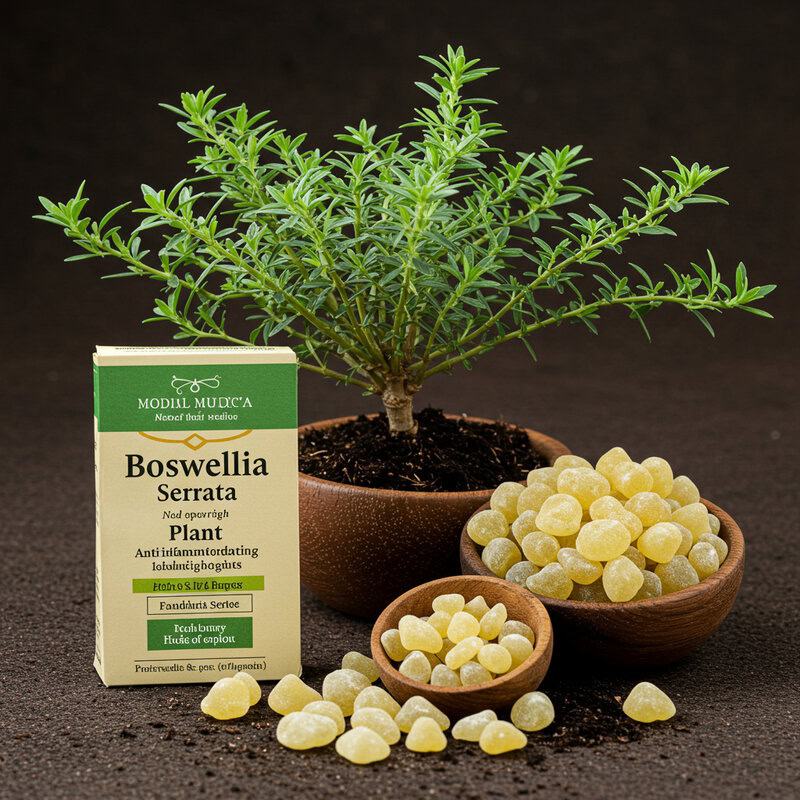
Boswellia serrata, also known as Indian frankincense, is a traditional herb used for centuries in Ayurvedic medicine to combat inflammation. Its primary bioactive compounds, called boswellic acids, inhibit the formation of leukotrienes—potent inflammatory molecules produced via the 5-lipoxygenase (5-LOX) pathway (NCBI). By directly blocking leukotriene synthesis, Boswellia helps alleviate symptoms in conditions like osteoarthritis, rheumatoid arthritis, and inflammatory bowel disease.
Compared to traditional nonsteroidal anti-inflammatory drugs (NSAIDs), Boswellia offers similar benefits in reducing pain and swelling but with a lower risk of gastrointestinal side effects (NCBI). This makes it an attractive option for individuals seeking natural alternatives to pharmaceutical anti-inflammatories, especially for long-term management of chronic inflammation.
When selecting a Boswellia supplement, look for products standardized to contain at least 65% boswellic acids, as this ensures potency and efficacy. Always choose reputable brands that conduct third-party testing for purity and contaminants. Though generally well tolerated, some individuals may experience mild digestive issues, so consulting a healthcare provider before use is recommended.
6. Resveratrol

Resveratrol is a polyphenolic compound found in the skin of red grapes, peanuts, and certain berries, and is widely recognized for its antioxidant and anti-inflammatory properties. Resveratrol works by inhibiting inflammatory enzymes, such as cyclooxygenases, and downregulating pro-inflammatory cytokines like tumor necrosis factor-alpha (TNF-α) and interleukin-6 (IL-6) (NCBI). These mechanisms contribute significantly to its role in maintaining cardiovascular health, as chronic inflammation is a key factor in the development of heart disease and atherosclerosis.
Red wine is a well-known dietary source of resveratrol, and moderate consumption has been associated with a reduced risk of cardiovascular disease in population studies. However, the actual resveratrol content in wine is relatively low, leading many to opt for concentrated supplement forms to achieve therapeutic effects (Harvard Health).
Resveratrol supplements are available in capsules or tablets, often standardized for potency. Typical dosages range from 100 to 500 mg per day, but higher doses may be used in research settings. While generally well tolerated, resveratrol may interact with anticoagulant medications, so it is best to consult a healthcare provider for personalized guidance.
7. Spirulina
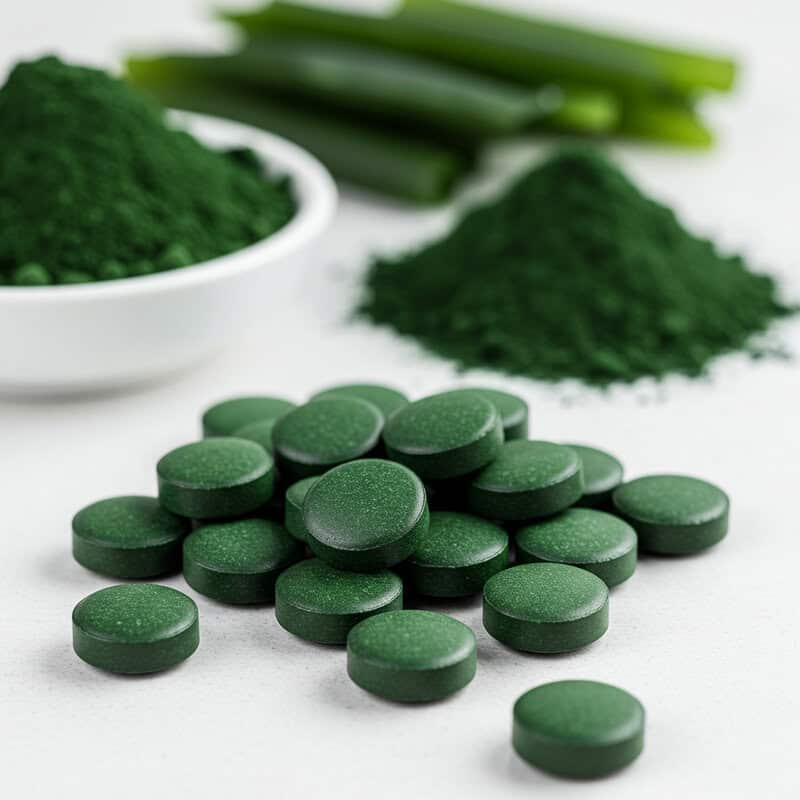
Spirulina, a nutrient-dense blue-green algae, has gained attention for its remarkable ability to modulate immune responses and reduce inflammation. Rich in phycocyanin, a pigment-protein complex, spirulina exerts anti-inflammatory effects by inhibiting the production of pro-inflammatory cytokines and suppressing oxidative stress (NCBI). These actions contribute to spirulina’s potential to support overall immune health and protect against chronic inflammatory conditions.
Research indicates that spirulina supplementation may be particularly beneficial for individuals with metabolic syndrome—a cluster of risk factors including high blood pressure, elevated blood sugar, and abnormal cholesterol levels. Clinical studies have shown that daily spirulina intake can improve inflammatory markers, lower LDL cholesterol, and enhance antioxidant status in people with metabolic syndrome (NCBI).
Spirulina is available in powder, tablet, and capsule forms. It can be easily mixed into smoothies, juices, or even sprinkled on salads. A typical daily dose ranges from 1 to 3 grams, though some studies use up to 8 grams. As with any supplement, it is important to choose high-quality, contaminant-free spirulina from reputable sources and to consult a healthcare professional before starting a new regimen.
8. Bromelain
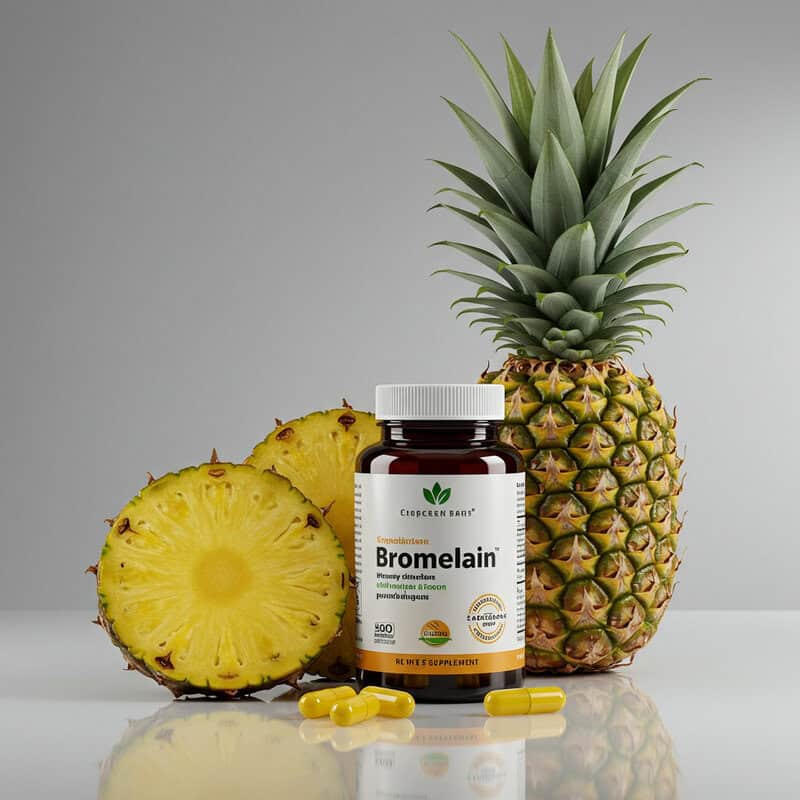
Bromelain is a proteolytic enzyme complex extracted from the stem and fruit of the pineapple plant. It has been widely studied for its ability to reduce swelling, bruising, and inflammation, especially in the context of injuries, post-surgical recovery, and conditions like sinusitis and osteoarthritis (NCBI). Bromelain works by breaking down fibrin, a protein involved in blood clotting and tissue repair, and by modulating the activity of pro-inflammatory prostaglandins and cytokines. This results in decreased tissue edema and accelerated healing.
While eating fresh pineapple does provide a small amount of bromelain, the enzyme is most concentrated in the stem, which is not typically consumed. Therefore, to achieve therapeutic anti-inflammatory effects, concentrated bromelain supplements are generally required. These supplements are available in tablet or capsule form and are often standardized by enzyme activity, measured in GDU (gelatin digesting units) or MCU (milk clotting units).
A typical supplemental dose ranges from 200 to 500 mg, taken two to three times daily between meals for maximum absorption. Although generally safe, bromelain may increase bleeding risk, especially for those on anticoagulants, so healthcare consultation is recommended before use.
9. Quercetin
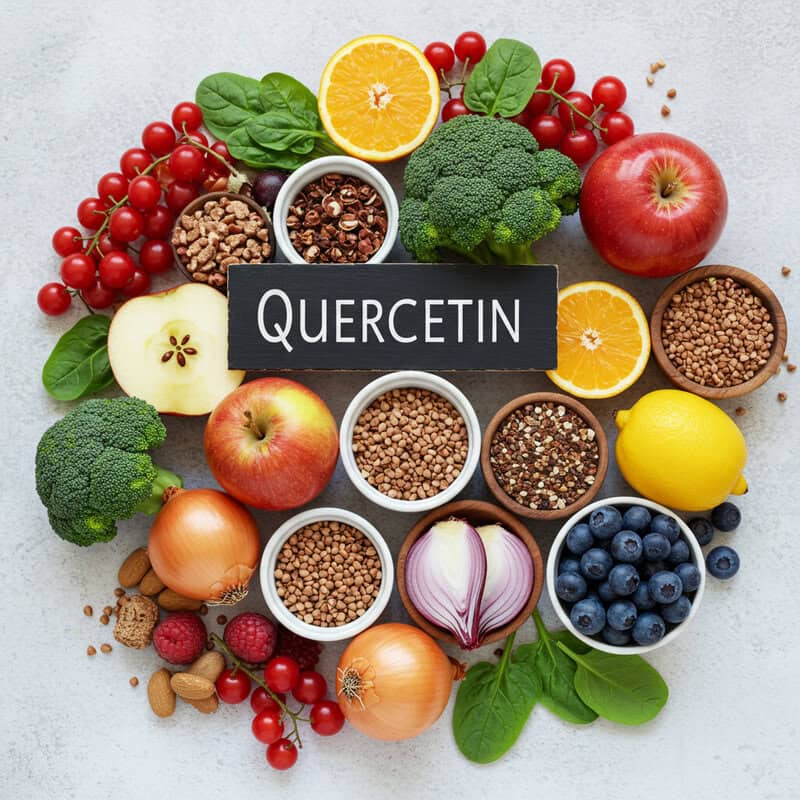
Quercetin is a naturally occurring flavonoid found in many fruits, vegetables, and grains, celebrated for its robust antioxidant and anti-inflammatory properties. It exerts its anti-inflammatory effects by inhibiting enzymes such as cyclooxygenase (COX) and lipoxygenase (LOX), as well as blocking the release of histamines and pro-inflammatory cytokines like interleukin-6 (IL-6) and tumor necrosis factor-alpha (TNF-α) (NCBI). This ability to modulate inflammatory pathways at the cellular level makes quercetin a promising supplement for managing chronic inflammation and supporting immune health.
Rich dietary sources of quercetin include apples, onions, berries, citrus fruits, kale, and broccoli. Drinking green and black tea can also provide a boost of this potent flavonoid. While a balanced diet can help ensure quercetin intake, supplements are available for those seeking higher or more consistent doses—especially in cases of allergies, inflammatory diseases, or oxidative stress.
Supplemental quercetin is typically found in capsule or tablet form, with common daily doses ranging from 500 to 1,000 mg. It is often paired with bromelain to enhance absorption and efficacy. Individuals on medications or with underlying health conditions should consult a healthcare provider before starting supplementation.
10. Vitamin D
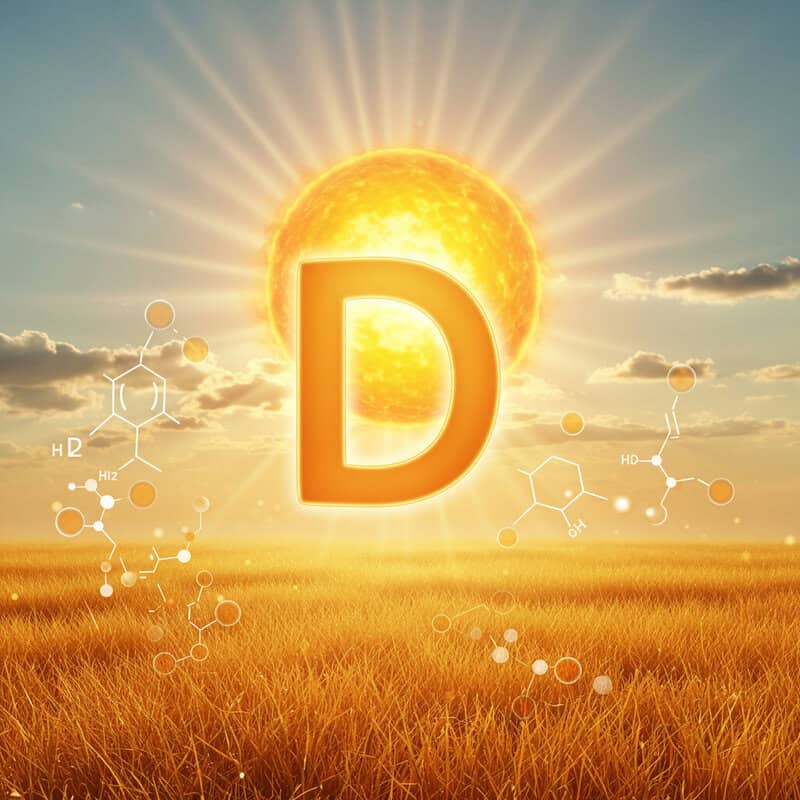
Vitamin D is an essential fat-soluble nutrient that plays a pivotal role in immune system regulation and the reduction of inflammation. Research demonstrates that vitamin D modulates both innate and adaptive immune responses, helping to suppress the production of pro-inflammatory cytokines and promote anti-inflammatory molecules (NCBI). Low vitamin D status has been linked to increased risk of autoimmune diseases, respiratory infections, and chronic inflammatory conditions such as rheumatoid arthritis and inflammatory bowel disease.
Vitamin D deficiency is common worldwide, particularly in regions with limited sunlight exposure or among individuals with darker skin, older adults, and those who spend little time outdoors. Symptoms of deficiency can be subtle or absent but may include fatigue, bone pain, and frequent infections. Regularly checking serum 25(OH)D levels through a simple blood test is the most accurate way to assess vitamin D status.
To maintain optimal levels, spend time in sunlight, consume vitamin D-rich foods (such as fatty fish, egg yolks, and fortified dairy), or consider supplements if necessary. Daily supplementation doses often range from 1,000 to 2,000 IU, but individual needs vary. Consult a healthcare provider for personalized advice and safe management of vitamin D intake.
11. Probiotics
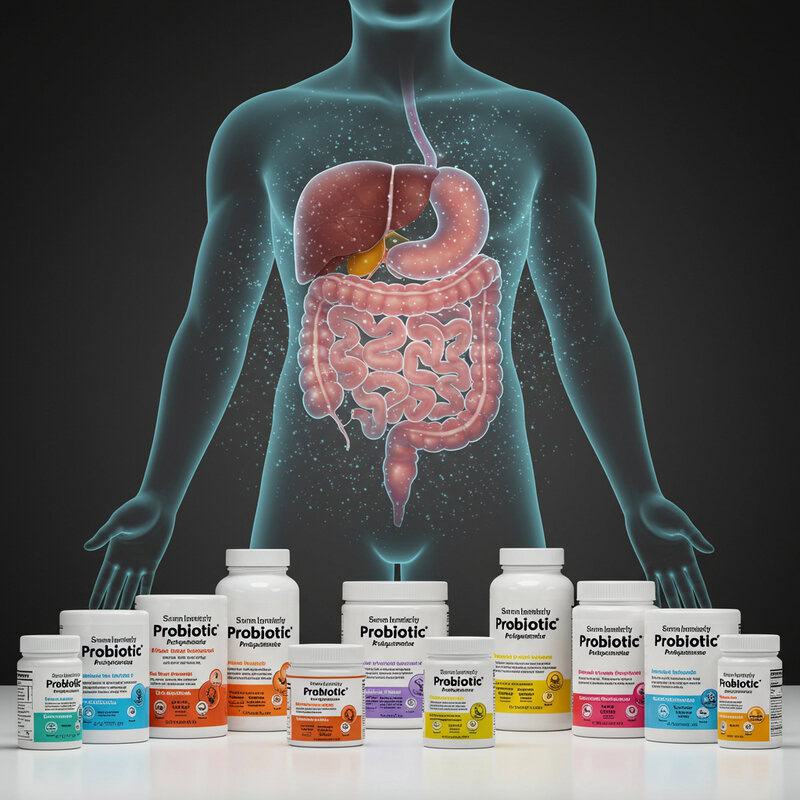
Probiotics are live microorganisms, primarily beneficial bacteria, that help maintain a balanced gut microbiome and support immune function. Emerging research shows that a healthy gut flora can significantly influence systemic inflammation by strengthening the intestinal barrier, reducing the translocation of pro-inflammatory molecules, and modulating immune cell activity (NCBI). Dysbiosis, or an imbalance of gut microbes, has been linked to a range of inflammatory conditions, including irritable bowel syndrome, obesity, and autoimmune diseases.
Not all probiotic strains have the same effects. Strains such as Lactobacillus rhamnosus, Bifidobacterium lactis, and Lactobacillus plantarum are well-studied for their anti-inflammatory potential and their ability to improve gut integrity and lower inflammatory markers. When choosing a probiotic supplement, look for products with specific strains and adequate colony-forming units (CFUs) to match your health needs.
Fermented foods offer a natural and delicious way to increase probiotic intake. Options include yogurt with live cultures, kefir, sauerkraut, kimchi, tempeh, and miso. Including a variety of these foods in your diet can help cultivate a diverse and resilient gut microbiome, supporting both digestive and systemic health.
12. Alpha-Lipoic Acid
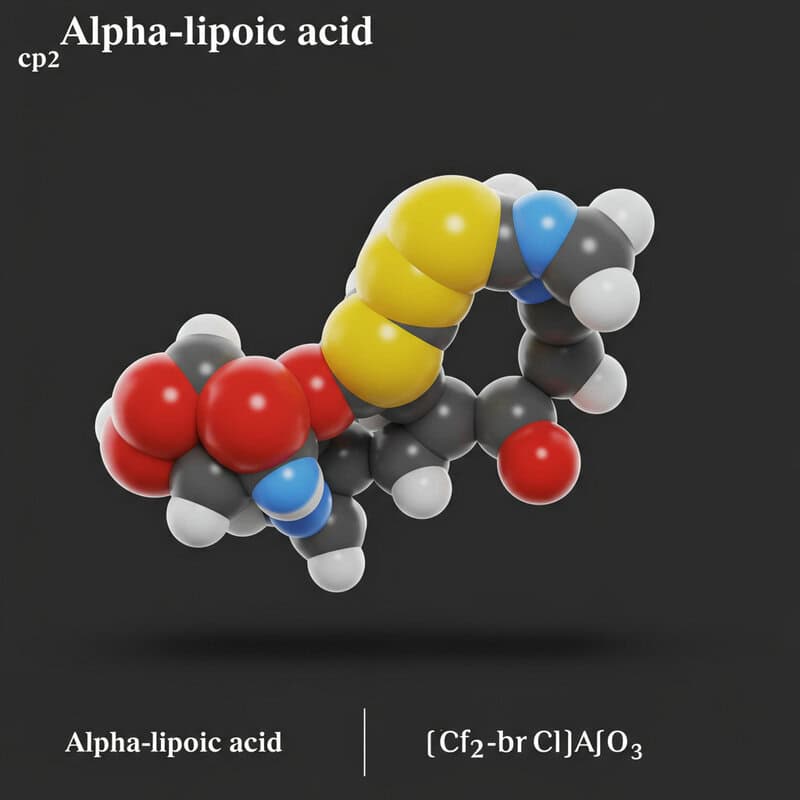
Alpha-lipoic acid (ALA) is a powerful antioxidant compound that plays a dual role in supporting cellular energy production and reducing oxidative stress. Its unique ability to function in both water- and fat-soluble environments allows it to neutralize a wide range of free radicals, protecting cells and tissues from damage. Research has shown that ALA can modulate inflammatory pathways by decreasing the production of pro-inflammatory cytokines and enhancing antioxidant defenses (NCBI).
ALA’s benefits are particularly notable in the context of nerve health. It has been widely studied for its role in managing diabetic neuropathy, a complication characterized by nerve pain and inflammation. Clinical trials indicate that ALA supplementation can improve symptoms of neuropathy, such as burning, tingling, and numbness, while also reducing inflammatory markers in affected individuals (NCBI).
Alpha-lipoic acid supplements are available in capsule or tablet form, with typical dosages ranging from 300 to 600 mg per day for nerve support. While generally well tolerated, mild side effects such as gastrointestinal discomfort may occur. It is important to consult a healthcare professional before beginning supplementation, especially for those with diabetes or thyroid disorders.
13. Garlic Extract
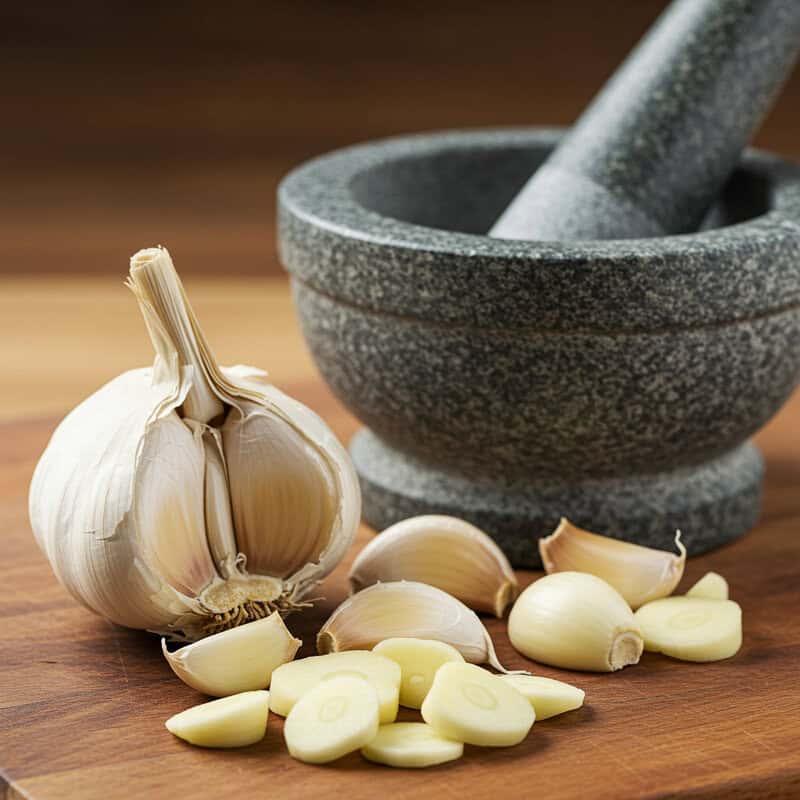
Garlic has been prized for centuries for its medicinal properties, with allicin and other sulfur-containing compounds recognized as the primary agents responsible for its anti-inflammatory effects. Allicin is formed when garlic is crushed or chopped, and has been shown to inhibit the activity of pro-inflammatory enzymes such as cyclooxygenase (COX) and lipoxygenase (LOX), as well as reduce the production of cytokines like tumor necrosis factor-alpha (TNF-α) and interleukin-1 beta (IL-1β) (NCBI). These actions help lower inflammation throughout the body and may contribute to cardiovascular, immune, and metabolic health.
Garlic can be enjoyed in a variety of culinary forms—raw, roasted, or sautéed—in dishes such as soups, stews, salads, and sauces. For those seeking more concentrated benefits, garlic extract supplements, including aged garlic extract and standardized capsules, are widely available. These forms often provide a consistent dose of allicin and related bioactive compounds.
For daily use, consider adding one to two cloves of fresh garlic to meals or following the manufacturer’s dosage instructions for supplements. While generally safe, high intake may cause digestive discomfort or interact with blood-thinning medications, so a healthcare provider’s guidance is recommended for regular supplementation.
14. Vitamin C
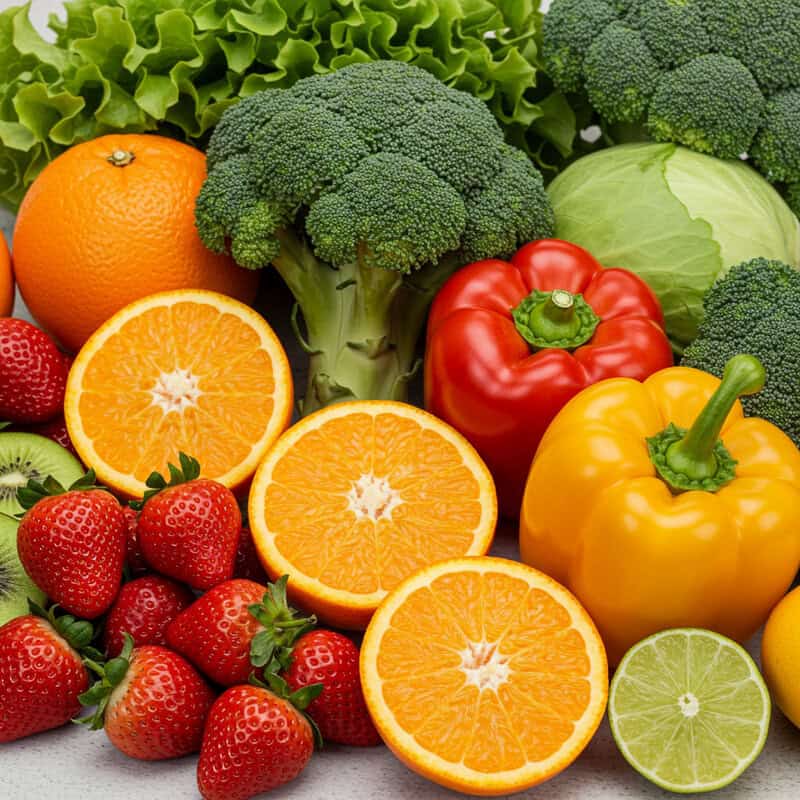
Vitamin C, also known as ascorbic acid, is a potent antioxidant that plays a crucial role in reducing oxidative stress and inflammation in the body. By neutralizing free radicals, vitamin C helps protect cells and tissues from oxidative damage—a key driver of chronic inflammation and age-related diseases (NCBI). It also supports immune system function and enhances the activity of anti-inflammatory molecules, contributing to faster recovery from infections and reduced risk of inflammatory conditions.
Citrus fruits such as oranges, grapefruits, lemons, and limes are among the best natural sources of vitamin C. Other fruits and vegetables rich in vitamin C include strawberries, kiwi, bell peppers, and broccoli. Consuming these foods regularly can help meet daily vitamin C requirements and support overall health.
For individuals who may not get enough vitamin C from their diet, supplements are widely available in tablets, capsules, powders, and chewable forms. The recommended daily intake for adults ranges from 65 to 90 mg, though higher doses may be used for immune support or in times of increased need. Vitamin C is generally safe, but excessive intake may cause digestive upset.
15. Astaxanthin
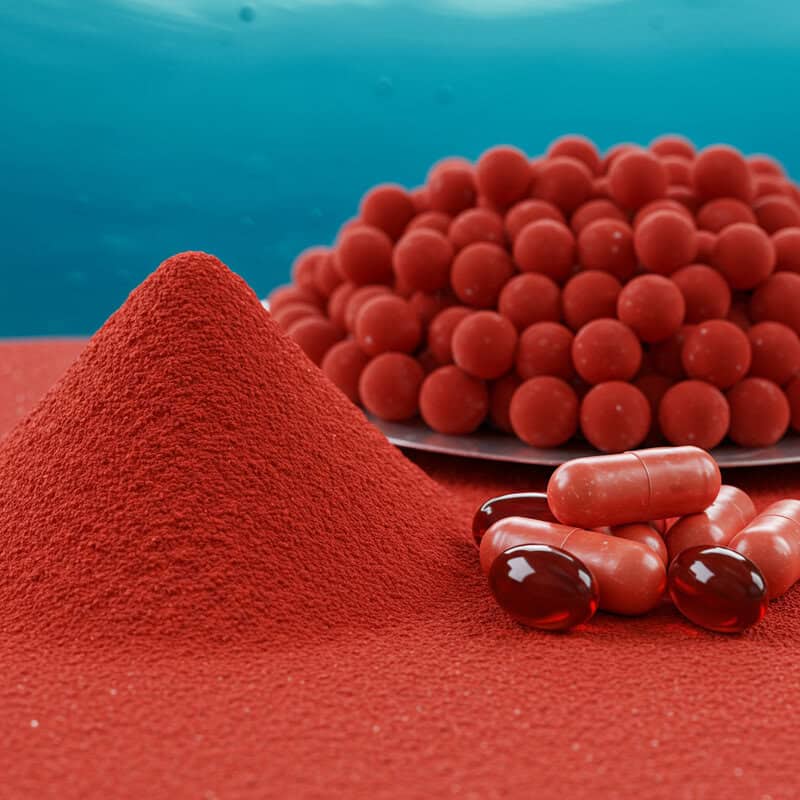
Astaxanthin is a vibrant red carotenoid pigment with exceptional antioxidant capabilities, renowned for its ability to combat oxidative stress and inflammation. Research suggests that astaxanthin is many times more potent than other antioxidants such as vitamin C and vitamin E, owing to its unique molecular structure that allows it to neutralize free radicals and protect cell membranes from damage (NCBI). These properties enable astaxanthin to significantly reduce inflammation, particularly in the skin and joints.
Studies have shown that astaxanthin supplementation can alleviate symptoms of joint pain and stiffness associated with inflammatory conditions such as arthritis. Additionally, it helps protect the skin from UV-induced inflammation, promoting improved skin elasticity and reduced signs of aging. The powerful effects of astaxanthin are largely attributed to its ability to suppress pro-inflammatory cytokines and enzymes, making it a valuable addition to anti-inflammatory regimens.
Natural marine sources of astaxanthin include microalgae (such as Haematococcus pluvialis), salmon, shrimp, crayfish, and krill. For therapeutic purposes, astaxanthin supplements are available in softgel and capsule forms, typically ranging from 4 to 12 mg per day. Always select high-quality, algae-derived products for optimal purity and efficacy.
16. Magnesium

Magnesium is an essential mineral involved in over 300 biochemical reactions in the human body, playing a pivotal role in muscle function, nerve transmission, and, notably, the regulation of chronic inflammation. Research demonstrates that adequate magnesium intake can suppress the production of pro-inflammatory cytokines, such as interleukin-6 (IL-6) and C-reactive protein (CRP), thereby reducing systemic inflammation and lowering the risk of chronic diseases like cardiovascular disease and type 2 diabetes (NCBI).
Magnesium deficiency is surprisingly common, particularly in populations consuming processed foods or those with gastrointestinal disorders. Symptoms of deficiency may include muscle cramps, fatigue, irregular heartbeat, mental confusion, and increased susceptibility to stress and inflammation. Over time, low magnesium levels can exacerbate chronic inflammatory processes and contribute to poor overall health.
To boost magnesium intake, incorporate foods such as leafy green vegetables, nuts, seeds, whole grains, and legumes into your daily diet. For those unable to meet their needs through food alone, magnesium supplements are available in various forms—magnesium citrate, glycinate, and oxide being the most common. Daily supplementation typically ranges from 200 to 400 mg. It’s best to consult a healthcare provider for personalized recommendations and to avoid excessive intake.
17. Zinc
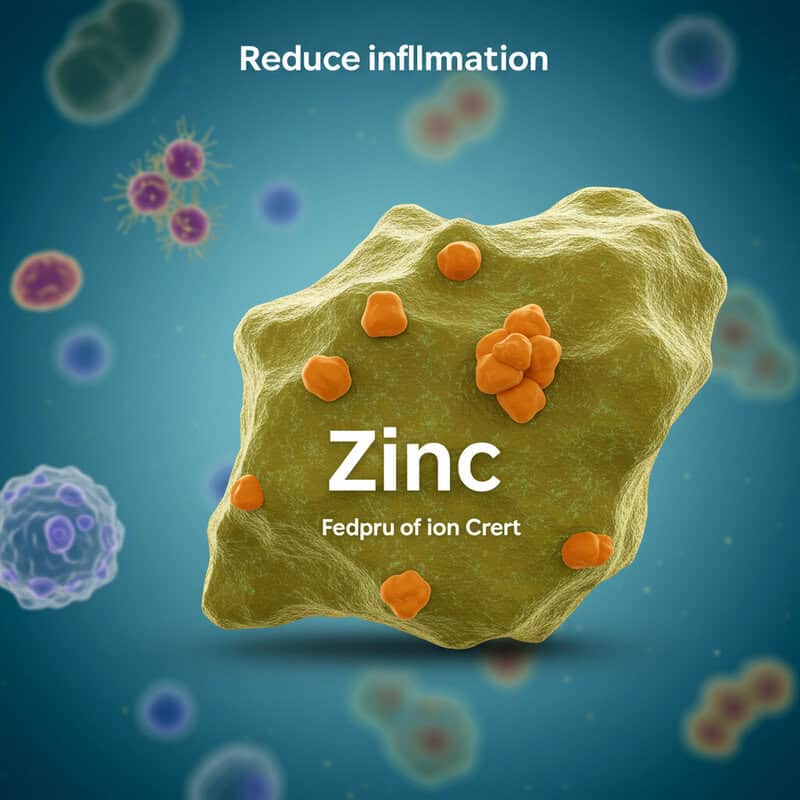
Zinc is a vital trace mineral that plays a crucial role in immune system function and the regulation of inflammation. It acts as a cofactor for numerous enzymes involved in cellular signaling and helps modulate the activity of immune cells such as neutrophils, natural killer cells, and T lymphocytes. Zinc also inhibits the production of pro-inflammatory cytokines, including interleukin-1 beta (IL-1β), tumor necrosis factor-alpha (TNF-α), and interleukin-6 (IL-6), thereby reducing the cascade of inflammatory responses (NCBI).
Dietary sources of zinc include oysters, beef, poultry, beans, nuts, whole grains, and dairy products. Plant-based sources contain phytates, which can inhibit zinc absorption, so vegetarians and vegans may need higher intake or supplementation to meet their needs. Zinc supplements are available in various forms, such as zinc gluconate, zinc picolinate, and zinc citrate, with picolinate and citrate forms generally offering better absorption.
To maximize zinc absorption, avoid taking zinc supplements with high-calcium foods or iron supplements, as these minerals can compete for absorption in the gut. Typical daily supplementation ranges from 8 to 11 mg for adults, but higher doses may be recommended for deficiency or immune support under medical supervision.
18. Flaxseed Oil
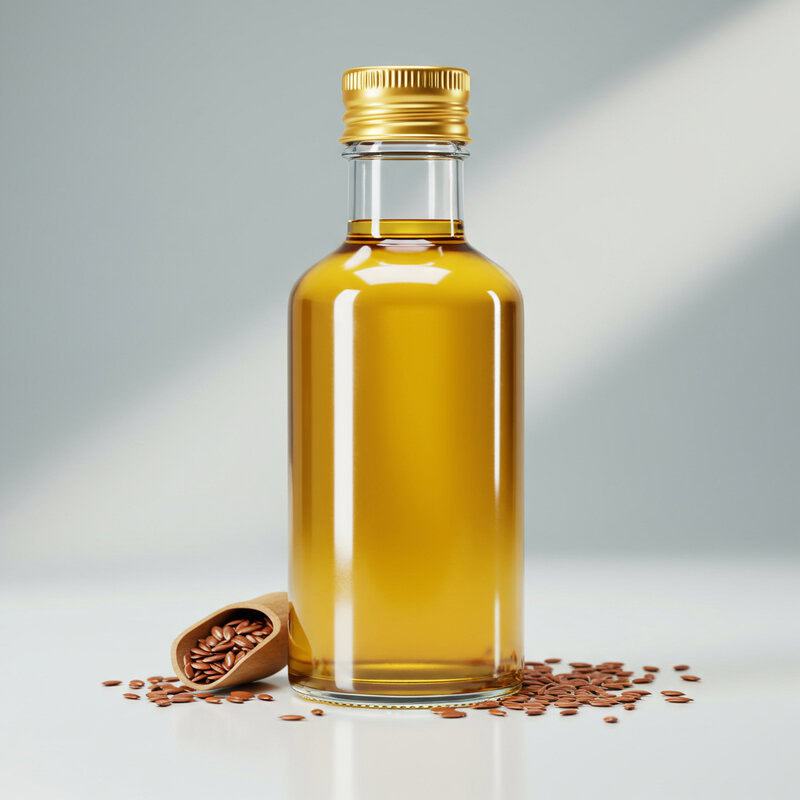
Flaxseed oil is a rich source of alpha-linolenic acid (ALA), a plant-based omega-3 fatty acid known for its anti-inflammatory properties. ALA is converted in the body, albeit inefficiently, into EPA and DHA—the same long-chain omega-3s found in fish oil that are directly involved in reducing inflammatory mediators and supporting cardiovascular, joint, and brain health (NCBI). Research suggests that regular intake of ALA from flaxseed oil can help decrease levels of C-reactive protein (CRP) and other markers of inflammation, making it a valuable option for individuals following plant-based diets.
Unlike fish oil, which provides the active forms EPA and DHA, flaxseed oil relies on the body’s ability to convert ALA into these compounds—a process that is often less efficient. Therefore, while flaxseed oil is beneficial for general anti-inflammatory support, those with higher omega-3 requirements or inflammatory conditions may need to consider direct sources of EPA and DHA, such as fish oil or algae-based supplements.
Flaxseed oil can be easily incorporated into the diet by drizzling over salads, mixing into smoothies, or taking as a supplement. Typical daily dosages range from 1 to 2 tablespoons. To preserve its delicate fatty acids, avoid heating flaxseed oil and always store it in a cool, dark place.
19. Cat’s Claw

Cat’s Claw (Uncaria tomentosa) is a medicinal vine native to the Amazon rainforest, traditionally used for centuries to treat inflammation and a variety of chronic conditions. Its bioactive alkaloid compounds, including oxindole alkaloids, are thought to play a central role in modulating immune responses and suppressing the production of pro-inflammatory cytokines such as tumor necrosis factor-alpha (TNF-α) and interleukin-1 beta (IL-1β) (NCBI). These actions help explain Cat’s Claw’s popularity as a natural remedy for inflammatory disorders.
Clinical studies have explored the efficacy of Cat’s Claw in managing arthritis, particularly rheumatoid arthritis and osteoarthritis. Results indicate that supplementation may reduce joint pain, swelling, and morning stiffness, with some trials suggesting improvements in quality of life for those with chronic inflammatory joint conditions (NCBI). However, more robust research is needed to fully establish its therapeutic potential.
Cat’s Claw is available in capsules, tablets, and teas. Dosages vary, but typical supplement recommendations range from 250 to 350 mg of standardized extract per day. While generally well-tolerated, Cat’s Claw may interact with immune-suppressing medications or cause digestive upset, so it is important to seek medical advice before use, especially for individuals with autoimmune conditions or those taking prescription drugs.
20. Glucosamine
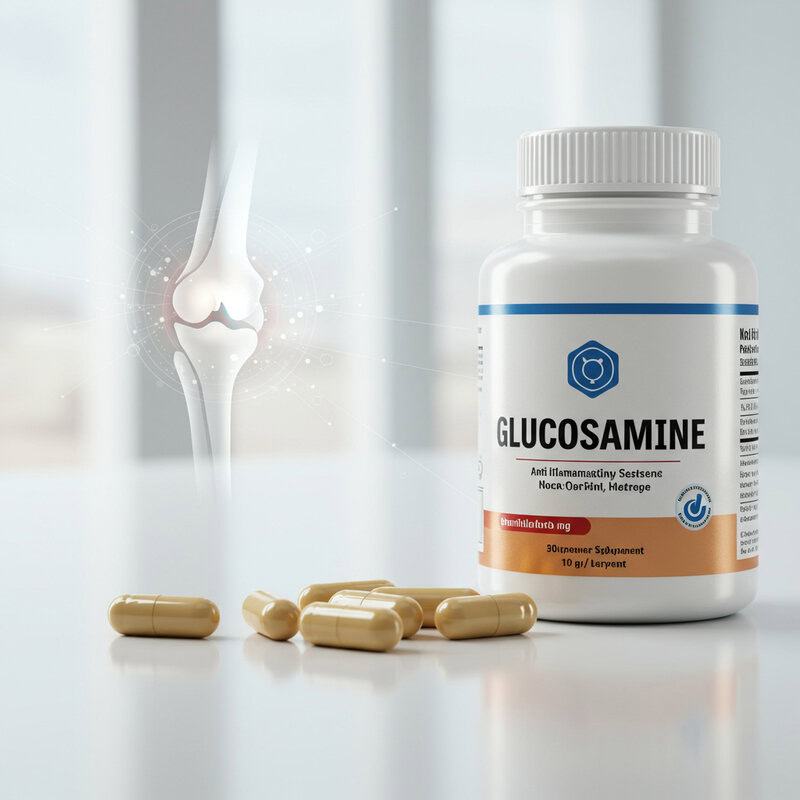
Glucosamine is a naturally occurring compound found in cartilage, the connective tissue that cushions joints. It is widely used as a supplement for supporting joint health and reducing inflammation, particularly in people with osteoarthritis. Glucosamine works by stimulating the production of glycosaminoglycans, which are essential for maintaining cartilage structure and function. Additionally, it may inhibit the activity of enzymes that break down cartilage and decrease the release of inflammatory cytokines within joint tissues (NCBI).
Glucosamine is often compared to chondroitin, another natural component of cartilage. While both supplements are commonly taken together for synergistic effects, some studies suggest that glucosamine alone may be just as effective or even superior in reducing joint pain and improving function in individuals with mild to moderate osteoarthritis (Arthritis Foundation).
Best practices for those using glucosamine include choosing high-quality sulfate or hydrochloride forms and following recommended dosages, typically 1,500 mg per day. Results may take several weeks to become noticeable. While generally safe, individuals with shellfish allergies or those taking blood thinners should consult a healthcare provider before beginning glucosamine supplementation.
21. Chondroitin
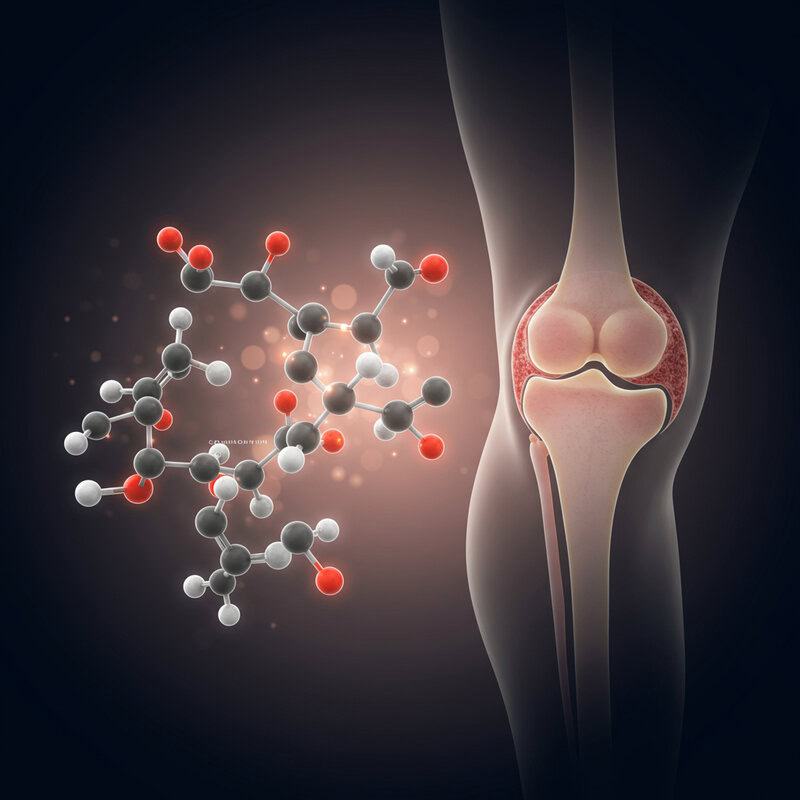
Chondroitin is a naturally occurring molecule found in connective tissues, particularly cartilage, where it helps retain water and maintain structural integrity. It is commonly used as a dietary supplement to support cartilage repair and reduce inflammation in conditions like osteoarthritis. Chondroitin works by inhibiting enzymes that degrade cartilage and by decreasing the release of pro-inflammatory mediators in the joints, which helps slow the progression of joint damage and alleviate pain (NCBI).
Chondroitin is often combined with glucosamine in joint health supplements, as the two compounds are believed to have complementary effects on cartilage regeneration and inflammation reduction. Some clinical studies have found that the combination can improve joint function and reduce pain more effectively than either supplement alone, while others suggest benefits may be modest and vary between individuals (Arthritis Foundation).
Typical dosages of chondroitin range from 800 to 1,200 mg per day, often split into two or three doses. It is generally safe, but mild digestive symptoms can occur in some users. As with any supplement, it is advisable to consult a healthcare professional before starting, especially for those on anticoagulants or with chronic health conditions.
22. S-adenosylmethionine (SAMe)
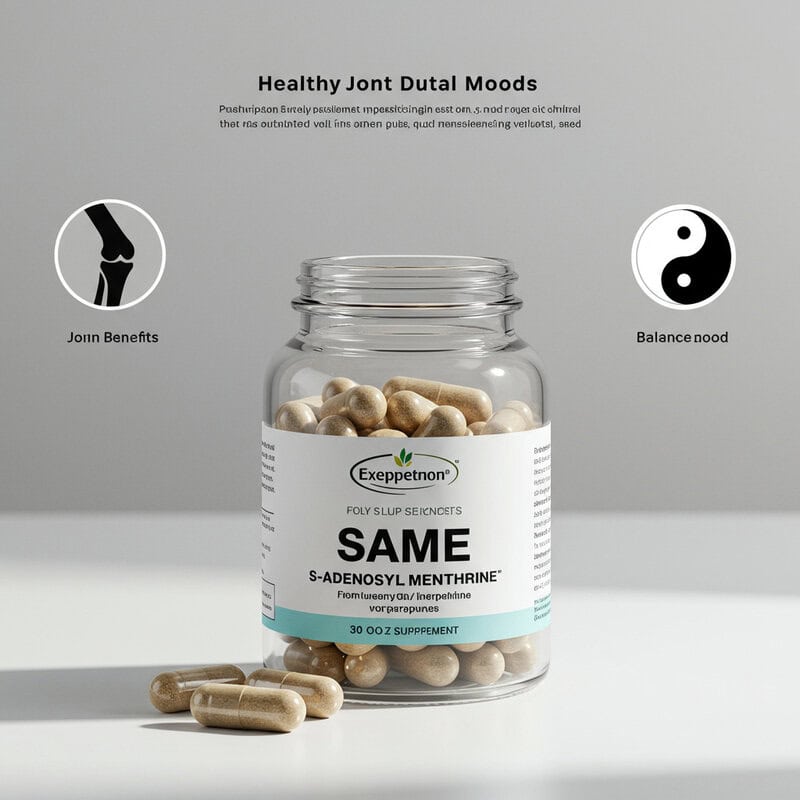
S-adenosylmethionine (SAMe) is a naturally occurring compound in the body involved in numerous metabolic processes, including methylation reactions and the synthesis of neurotransmitters. SAMe is well-known for its dual benefits in supporting both joint health and mood regulation. Its anti-inflammatory action is thought to stem from its ability to decrease the production of pro-inflammatory cytokines and promote the synthesis of proteoglycans, which help maintain cartilage structure and joint function (NCBI).
Clinical research supports the use of SAMe in osteoarthritis, with studies demonstrating that supplementation can reduce pain, improve joint mobility, and even slow the progression of cartilage degeneration. Some evidence suggests that SAMe may be as effective as nonsteroidal anti-inflammatory drugs (NSAIDs) for osteoarthritis, but with a more favorable safety profile (Arthritis Foundation).
SAMe is also recognized for its positive effects on mood and mental well-being, particularly in cases of mild to moderate depression. Supplements are available in tablet and capsule forms, with daily dosages typically ranging from 400 to 1,600 mg, divided into multiple doses. Because SAMe can interact with certain medications and affect neurotransmitter levels, it is essential to consult a healthcare provider before starting supplementation.
23. Pycnogenol (French Maritime Pine Bark Extract)

Pycnogenol, derived from the bark of the French maritime pine tree (Pinus pinaster), is a potent antioxidant supplement known for its broad anti-inflammatory effects. Rich in oligomeric proanthocyanidins (OPCs), Pycnogenol neutralizes free radicals and inhibits the activity of inflammatory enzymes, such as cyclooxygenase (COX) and lipoxygenase (LOX). It also reduces the production of pro-inflammatory cytokines, leading to diminished systemic inflammation (NCBI).
Clinical studies have highlighted Pycnogenol’s benefits for cardiovascular health, including improved endothelial function, reduced blood pressure, and enhanced circulation. Its anti-inflammatory properties are also beneficial for joint health, with research showing that Pycnogenol supplementation can decrease symptoms of osteoarthritis, such as pain, stiffness, and swelling, while improving mobility and quality of life (NCBI).
Pycnogenol is generally well tolerated and available in capsule or tablet forms, with typical dosages ranging from 50 to 150 mg per day. Because of its antioxidant and anti-inflammatory actions, Pycnogenol is a popular natural option for those seeking support for cardiovascular and joint health. Consultation with a healthcare provider is recommended before adding it to your regimen.
24. Methylsulfonylmethane (MSM)
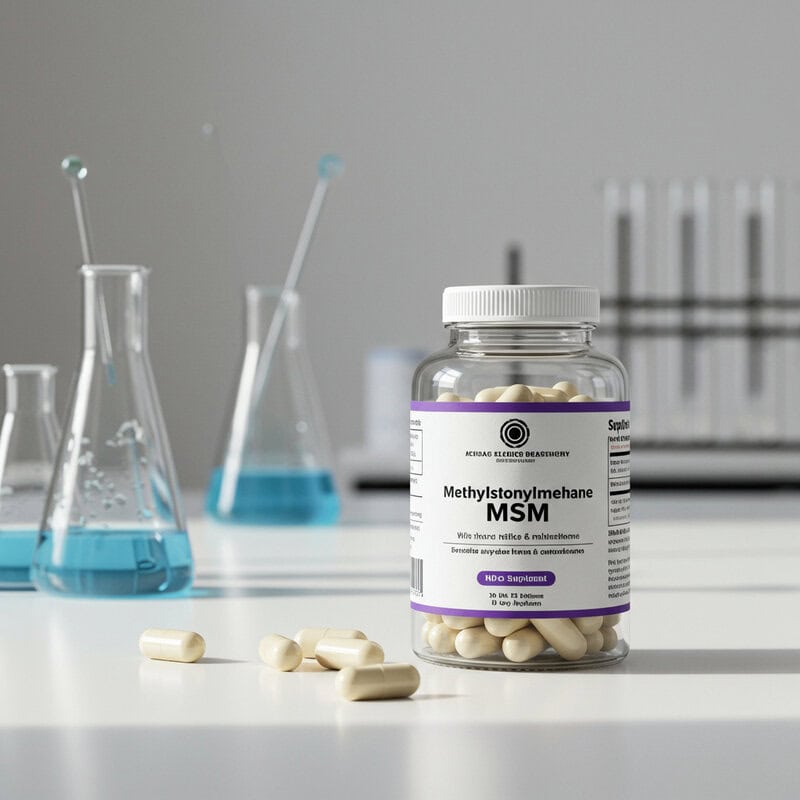
Methylsulfonylmethane (MSM) is an organic sulfur compound widely used to alleviate joint pain and inflammation. MSM’s anti-inflammatory effects are attributed to its ability to inhibit the release of pro-inflammatory cytokines, such as interleukin-6 (IL-6) and tumor necrosis factor-alpha (TNF-α), and to reduce oxidative stress in tissues. This makes MSM particularly popular among individuals with osteoarthritis, rheumatoid arthritis, and other joint-related conditions (NCBI).
In addition to joint support, MSM has gained recognition in the field of sports recovery. Studies indicate that MSM supplementation can decrease muscle soreness, reduce exercise-induced inflammation, and support faster recovery after intense physical activity. These benefits make it a valuable supplement for both athletes and physically active individuals seeking to minimize downtime and enhance performance (NCBI).
MSM is available in powder, capsule, and tablet forms, with common daily doses ranging from 1,500 to 3,000 mg, often divided into two or three servings. MSM is generally well tolerated, but mild side effects such as digestive upset may occur. It’s best to start with a lower dose and gradually increase as needed, and to consult a healthcare professional before beginning supplementation, especially if using other medications.
25. Devil’s Claw

Devil’s Claw (Harpagophytum procumbens) is a traditional herbal remedy native to southern Africa, renowned for its use in managing inflammation and pain. The primary active components in Devil’s Claw are iridoid glycosides, particularly harpagoside, which have been shown to exert strong anti-inflammatory and analgesic effects. These compounds work by inhibiting the activity of pro-inflammatory enzymes such as cyclooxygenase (COX) and lipoxygenase (LOX), as well as reducing the production of cytokines linked to inflammation (NCBI).
Evidence from clinical studies suggests that Devil’s Claw may be effective in relieving symptoms of lower back pain, osteoarthritis, and other musculoskeletal conditions. Several trials have demonstrated that standardized Devil’s Claw extracts can reduce pain and improve mobility in people with chronic back pain and arthritis, with efficacy comparable to certain nonsteroidal anti-inflammatory drugs (NSAIDs) but generally fewer side effects (NCBI).
Devil’s Claw is available in capsules, tablets, and tinctures. Dosages typically range from 600 to 1,200 mg of extract per day, standardized for harpagoside content. While well tolerated by most, it may cause mild gastrointestinal symptoms in some individuals. Those with ulcers or on blood thinners should consult a healthcare provider before use.
26. Vitamin E
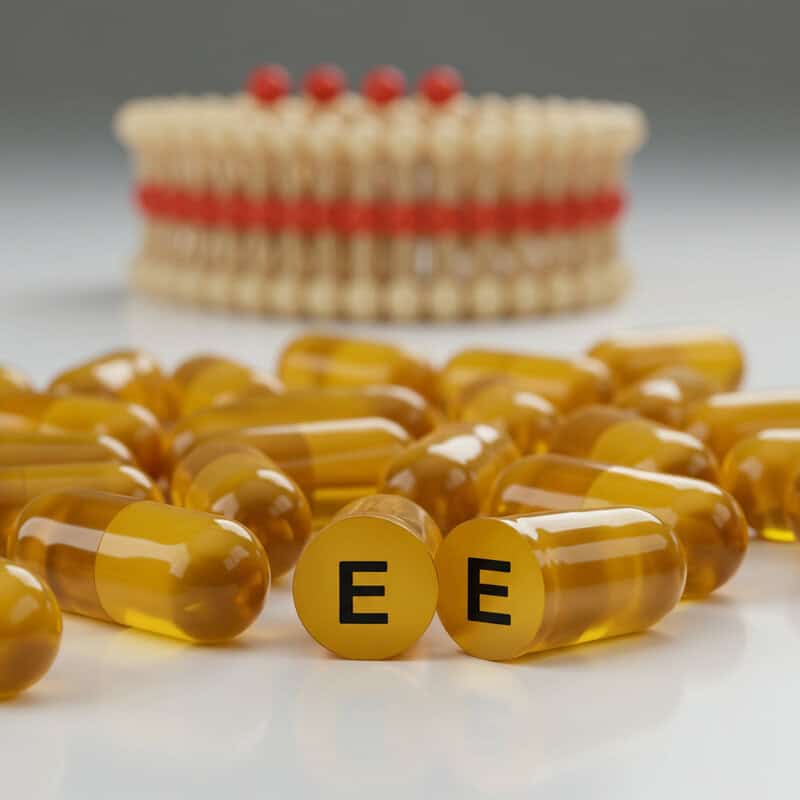
Vitamin E is a fat-soluble antioxidant that plays a significant role in protecting cells from oxidative stress and reducing inflammation. Its primary function involves scavenging free radicals and preventing the lipid peroxidation of cell membranes, which is a key factor in the development of chronic inflammation and associated diseases (NCBI). Studies indicate that vitamin E can lower the production of inflammatory markers such as C-reactive protein (CRP) and interleukin-6 (IL-6), supporting cardiovascular, immune, and skin health.
Vitamin E supplements are available in both natural (d-alpha-tocopherol) and synthetic (dl-alpha-tocopherol) forms. The natural form is more bioavailable and generally considered superior for absorption and efficacy. When choosing supplements, look for those sourced from natural vitamin E for optimal benefits. Dietary sources of vitamin E include nuts, seeds, spinach, broccoli, and vegetable oils such as sunflower and wheat germ oil.
The recommended daily intake for adults is about 15 mg (22.4 IU), though higher doses may be used therapeutically under medical supervision. Since vitamin E is fat-soluble, it is best absorbed when taken with meals containing healthy fats. Excessive supplementation should be avoided, as high doses may interfere with blood clotting and interact with anticoagulant medications.
27. N-Acetyl Cysteine (NAC)
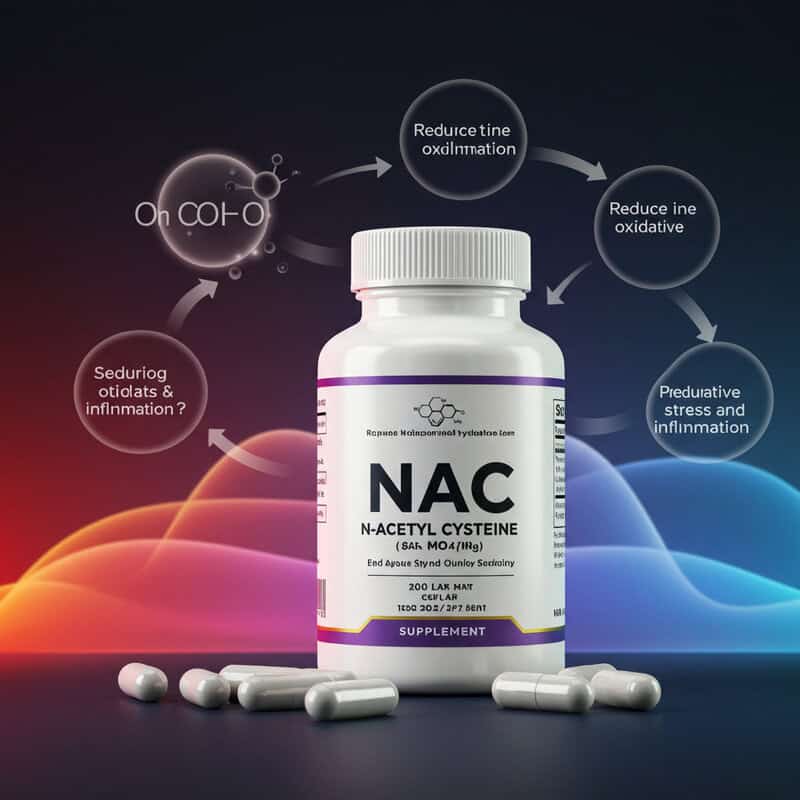
N-Acetyl Cysteine (NAC) is a derivative of the amino acid cysteine and is best known for its crucial role in boosting the body’s production of glutathione, a powerful intracellular antioxidant. Glutathione helps neutralize harmful free radicals and supports detoxification processes, thus reducing oxidative stress and inflammation at the cellular level (NCBI). By replenishing glutathione stores, NAC helps modulate the immune response and lower levels of inflammatory mediators such as tumor necrosis factor-alpha (TNF-α) and interleukin-6 (IL-6).
Clinically, NAC is widely used for its mucolytic properties in treating chronic respiratory conditions such as chronic obstructive pulmonary disease (COPD) and bronchitis. It helps break down thick mucus, making it easier to expel and improving lung function. Additionally, NAC is a standard treatment for acetaminophen (paracetamol) overdose due to its ability to protect the liver from toxic damage and support recovery in acute liver failure (NCBI).
NAC supplements are available in capsule, tablet, and powder forms, with common doses ranging from 600 to 1,800 mg per day, depending on the condition. While generally safe, NAC should be used under medical supervision, especially in individuals with asthma or those taking medications that affect lung or liver function.
28. Tart Cherry Extract
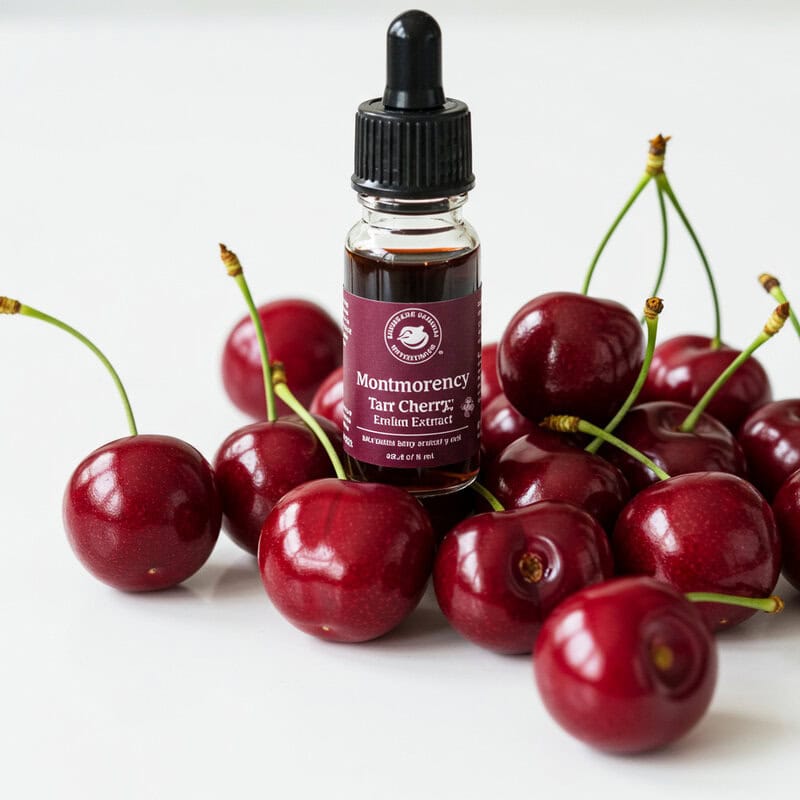
Tart cherry extract, derived from Montmorency cherries, is rich in anthocyanins—potent antioxidants responsible for the fruit’s deep red color and its impressive anti-inflammatory properties. Anthocyanins have been shown to reduce the activity of enzymes such as cyclooxygenase (COX), thereby lowering the production of pro-inflammatory prostaglandins and cytokines (NCBI). This makes tart cherry extract a valuable natural option for managing exercise-induced inflammation and supporting recovery.
Several studies have investigated the effects of tart cherry supplementation in athletes, demonstrating reduced muscle soreness, faster recovery, and lower markers of inflammation after strenuous exercise. For example, runners and endurance athletes who consumed tart cherry juice or extract before and after events reported less muscle damage and improved performance compared to placebo groups (NCBI).
Tart cherry extract can be consumed as juice, concentrate, or in capsule form. A common recommendation is 8-12 ounces of juice or 400-500 mg of extract daily, especially around periods of intense physical activity. While generally safe and well tolerated, individuals with sensitivities to sour fruits should start with a smaller dose to assess tolerance.
29. Coenzyme Q10 (CoQ10)
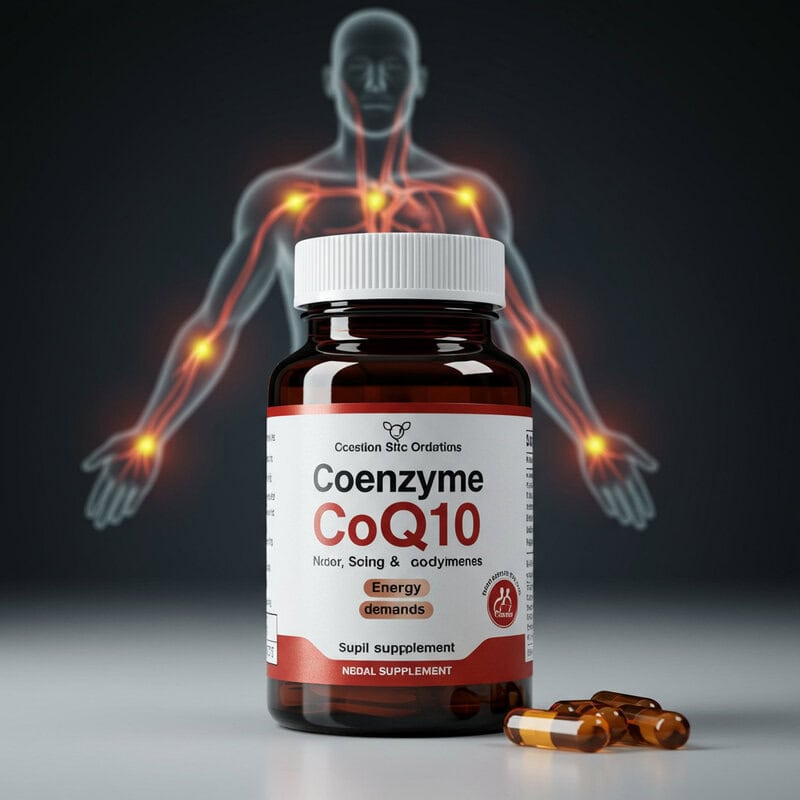
Coenzyme Q10 (CoQ10) is a vital antioxidant and cellular energy cofactor found in every cell of the body, particularly concentrated in organs with high energy demands such as the heart and muscles. CoQ10 plays a central role in mitochondrial energy production (ATP synthesis) and helps protect cells from oxidative damage. Studies have shown that CoQ10 supplementation can lower levels of inflammatory biomarkers like C-reactive protein (CRP) and interleukin-6 (IL-6), supporting its utility in reducing systemic inflammation (NCBI).
There are two main forms of CoQ10 supplements: ubiquinone (the oxidized form) and ubiquinol (the reduced, active form). Ubiquinol is more bioavailable and may be preferable for older adults or individuals with compromised absorption. Both forms, however, have demonstrated clinical benefits, particularly in cardiovascular health. CoQ10 has been shown to improve symptoms of heart failure, reduce blood pressure, and enhance vascular function, making it a popular adjunct for those with cardiovascular disease (NCBI).
Typical daily dosages of CoQ10 range from 100 to 300 mg, taken with meals containing fat for better absorption. CoQ10 is generally well tolerated, but individuals on blood thinners or certain heart medications should consult a healthcare provider before supplementing.
30. Licorice Root Extract

Licorice root extract, derived from the root of the Glycyrrhiza glabra plant, has been used in traditional medicine for centuries to treat inflammation and a range of ailments. The primary bioactive compound, glycyrrhizin, exhibits potent anti-inflammatory effects by inhibiting the activity of pro-inflammatory enzymes and cytokines such as cyclooxygenase (COX) and tumor necrosis factor-alpha (TNF-α) (NCBI). Glycyrrhizin also supports adrenal gland function and helps modulate the body’s stress response, which can further reduce inflammation.
Licorice root is commonly consumed as a tea, tincture, or supplement. In traditional practices, it’s used to soothe gastrointestinal discomfort, respiratory issues, and inflammatory skin conditions. Modern supplements are available as capsules or standardized extracts, often formulated to contain specific percentages of glycyrrhizin for consistent effects.
While licorice root extract offers notable benefits, it must be used with caution. Excessive intake of glycyrrhizin can cause side effects such as elevated blood pressure, low potassium levels, and fluid retention. For extended use or for individuals with cardiovascular or kidney conditions, “deglycyrrhizinated” licorice (DGL) is recommended as a safer option. Always consult a healthcare provider before starting licorice supplementation.
31. Aloe Vera Extract
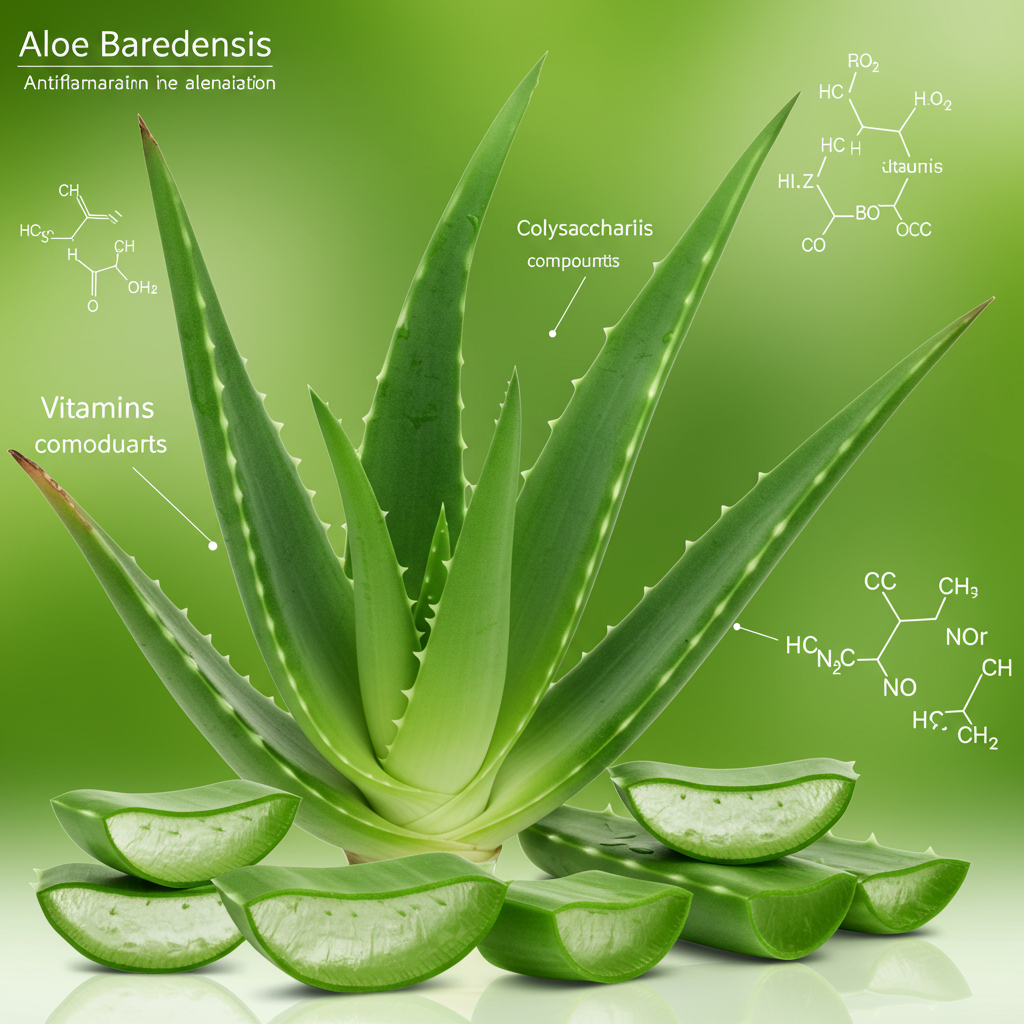
Aloe vera, derived from the succulent leaves of the Aloe barbadensis plant, is renowned for its soothing and anti-inflammatory properties. The gel contains a variety of bioactive compounds, including polysaccharides, vitamins, and antioxidants, which work together to reduce inflammation at both the skin and systemic levels. Research shows that aloe vera inhibits the production of pro-inflammatory cytokines and enzymes, such as cyclooxygenase (COX), helping to alleviate redness, swelling, and discomfort (NCBI).
Topically, aloe vera gel is widely used to soothe burns, wounds, eczema, and other skin irritations. Its cooling effect and ability to promote healing make it a staple in many first-aid kits and skincare routines. Orally, aloe vera juice and supplements are sometimes taken to support digestive health and reduce inflammation in conditions like irritable bowel syndrome (IBS) and inflammatory bowel disease (IBD).
While aloe vera is generally safe for topical use, oral consumption should be approached with caution. Some aloe preparations can have laxative effects and may interact with certain medications. Prolonged or excessive use, especially of whole-leaf extracts, may pose risks such as kidney irritation. Always select reputable products and consult a healthcare provider before adding oral aloe vera to your regimen.
32. Black Seed Oil (Nigella Sativa)
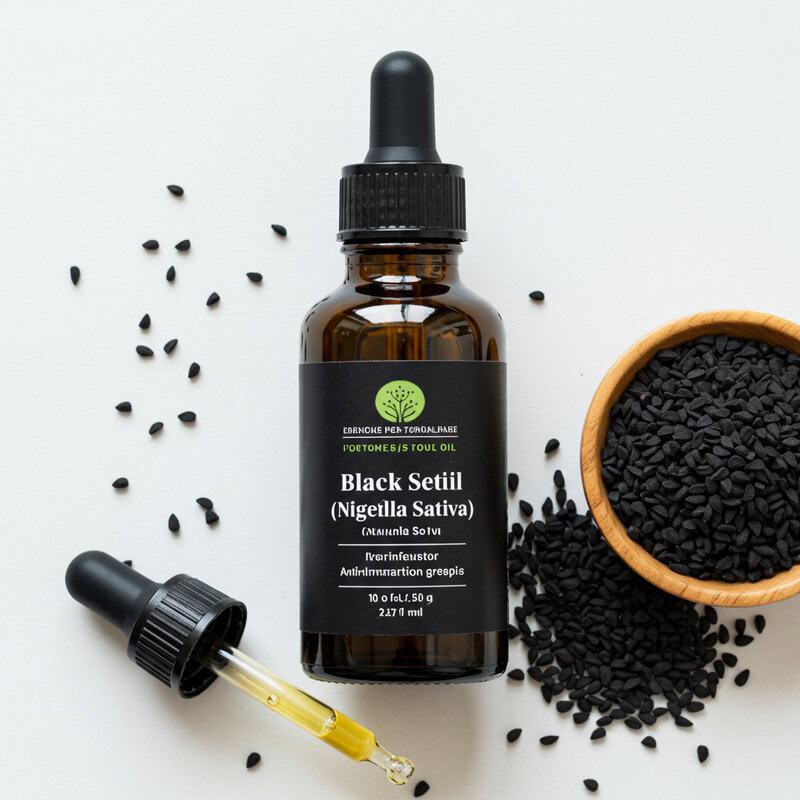
Black seed oil, extracted from the seeds of Nigella sativa, has been used for centuries in traditional medicine for its diverse healing properties. The key bioactive compound, thymoquinone, is largely responsible for the oil’s potent anti-inflammatory and antioxidant effects. Research demonstrates that thymoquinone inhibits the activity of pro-inflammatory cytokines, such as tumor necrosis factor-alpha (TNF-α) and interleukin-6 (IL-6), and blocks the activation of nuclear factor-kappa B (NF-κB), a signaling pathway involved in chronic inflammation (NCBI).
Clinical studies have shown promising results for black seed oil in managing inflammatory conditions like asthma and allergies. Supplementation may help reduce airway inflammation, ease bronchospasm, and improve overall respiratory function in individuals with asthma (NCBI). It may also offer relief for allergic rhinitis and eczema by modulating immune responses and decreasing histamine release.
Black seed oil can be consumed as a liquid supplement or in capsule form, with typical dosages ranging from 500 mg to 2,000 mg daily, depending on the condition. The oil may also be applied topically for skin inflammation. While generally safe, it should be used with caution in pregnant women and those on anticoagulant medications. Consulting a healthcare provider before starting supplementation is advised.
33. Grape Seed Extract
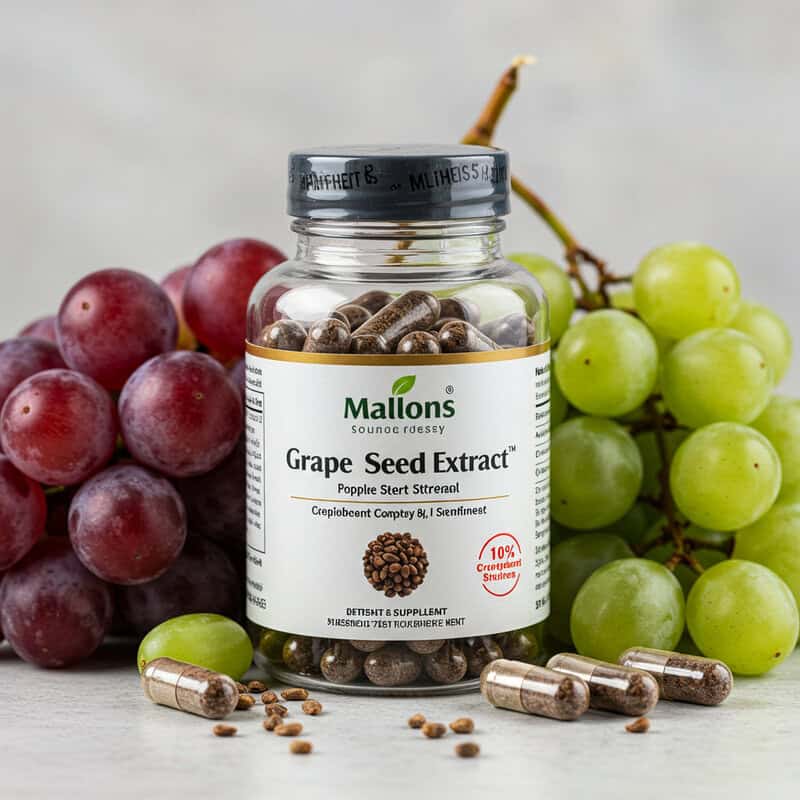
Grape seed extract is a potent supplement rich in oligomeric proanthocyanidins (OPCs), a class of powerful antioxidants known for their impressive anti-inflammatory effects. OPCs help neutralize free radicals and suppress the activity of pro-inflammatory enzymes and cytokines, including tumor necrosis factor-alpha (TNF-α) and interleukin-6 (IL-6), which play a central role in chronic inflammation (NCBI). This makes grape seed extract a valuable tool for reducing systemic inflammation and protecting against oxidative stress-related damage.
Beyond its anti-inflammatory properties, grape seed extract has been studied for its cardiovascular benefits. Evidence suggests that regular supplementation can help lower blood pressure, improve blood vessel elasticity, and reduce LDL cholesterol oxidation, thereby supporting overall heart health (Healthline). When compared to other antioxidants, OPCs found in grape seed extract are particularly effective at scavenging free radicals and protecting cells from oxidative damage.
Grape seed extract is typically available in capsule or tablet form, with common dosages ranging from 100 to 300 mg per day. It is generally well tolerated, but those on anticoagulant medications should consult a healthcare provider before use, as OPCs may have mild blood-thinning effects.
34. Milk Thistle (Silymarin)
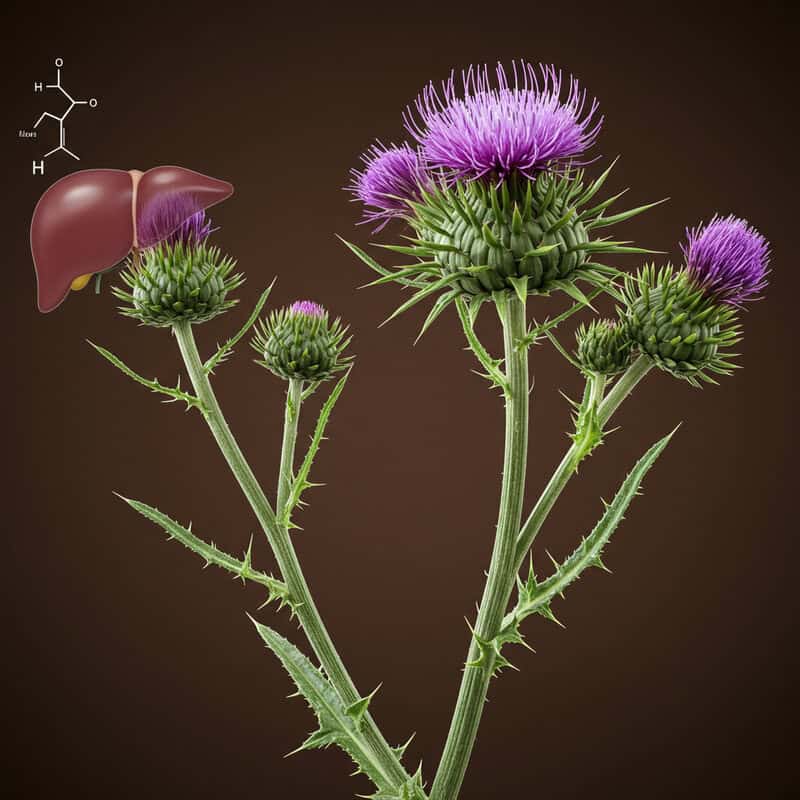
Milk thistle (Silybum marianum) is a well-known herbal remedy, prized for its liver-protective and anti-inflammatory properties. The primary active compound, silymarin, is a complex of flavonolignans that helps stabilize cell membranes, reduce oxidative stress, and inhibit the production of pro-inflammatory cytokines in liver tissue (NCBI). These mechanisms support the liver’s natural detoxification processes and protect against damage from toxins, medications, and chronic diseases.
Clinical research has shown that silymarin supplementation can benefit individuals with liver conditions, such as non-alcoholic fatty liver disease (NAFLD), hepatitis, and cirrhosis. Studies indicate that milk thistle may help lower liver enzyme levels, reduce inflammation, and improve overall liver function, making it a valuable adjunct in the management of chronic liver disorders (NCBI).
Milk thistle is most commonly consumed as a standardized extract, providing 70-80% silymarin, with typical dosages ranging from 140 to 420 mg per day, divided into two or three doses. It is generally safe for most people but may cause mild digestive upset. Individuals with hormone-sensitive conditions or those taking prescription medications should consult a healthcare provider before supplementing.
35. Evening Primrose Oil
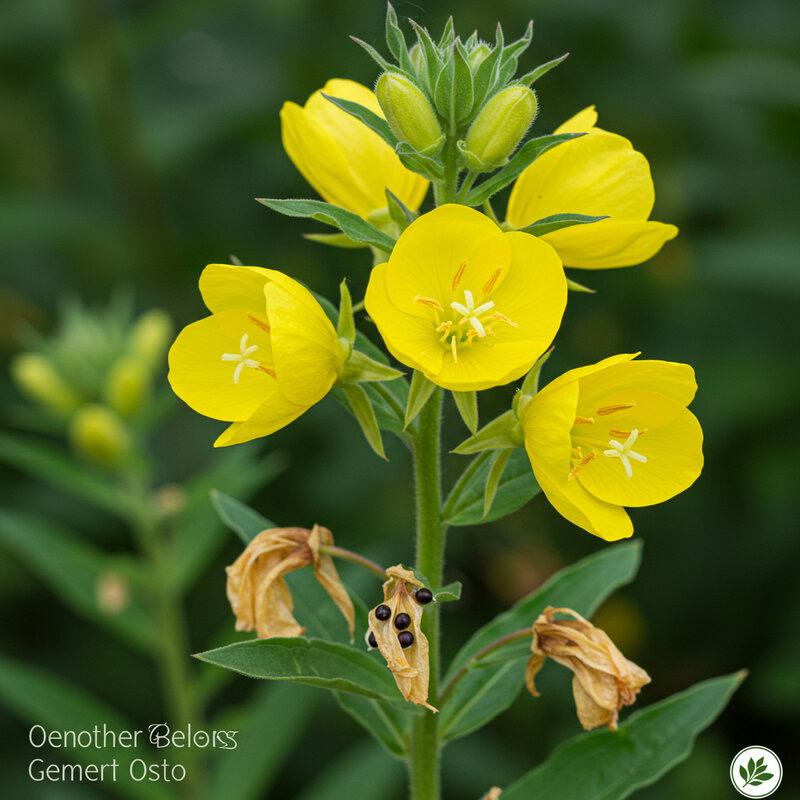
Evening primrose oil is extracted from the seeds of the Oenothera biennis plant and is a rich source of gamma-linolenic acid (GLA), an omega-6 fatty acid known for its potent anti-inflammatory properties. GLA is converted within the body to dihomo-gamma-linolenic acid (DGLA), which helps produce anti-inflammatory prostaglandins and suppress the synthesis of pro-inflammatory cytokines (NCBI). This biochemical process makes evening primrose oil a valuable supplement for tempering chronic inflammation and supporting immune health.
Clinical research highlights the efficacy of evening primrose oil in managing symptoms of eczema and atopic dermatitis. Supplementation can help reduce skin redness, itching, and swelling, likely due to its ability to restore essential fatty acid balance and decrease inflammatory responses. Evening primrose oil is also studied for its benefits in rheumatoid arthritis, where it may help lessen joint pain, stiffness, and tenderness by modulating inflammatory pathways (NCBI).
Evening primrose oil supplements are available in softgel or liquid form, with common daily doses ranging from 500 to 1,300 mg of GLA. While generally safe, mild gastrointestinal upset can occur. Individuals with bleeding disorders or those taking anticoagulants should seek medical advice before use.
36. Reishi Mushroom Extract
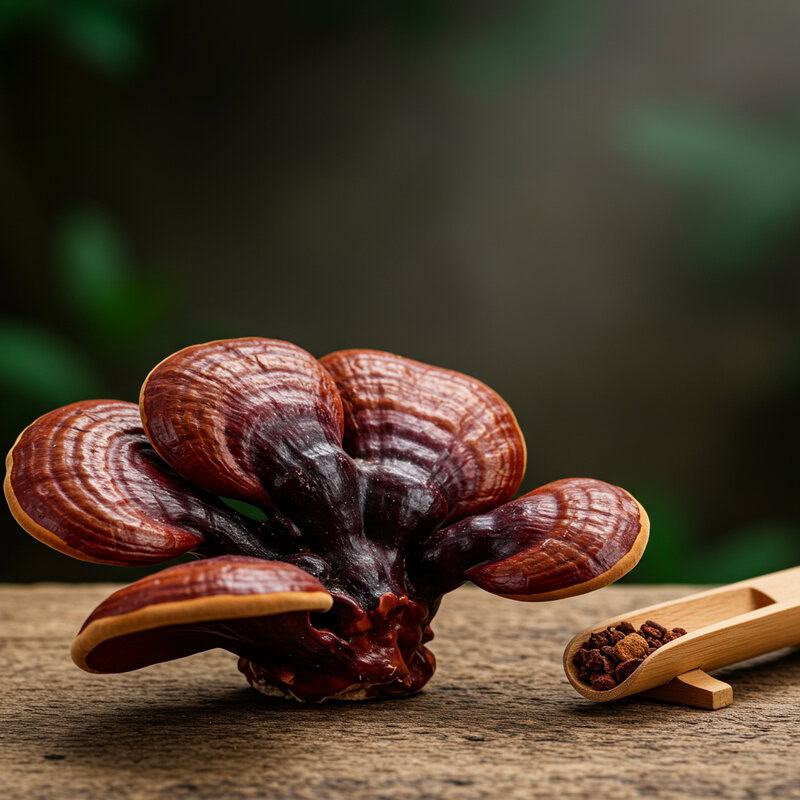
Reishi mushroom (Ganoderma lucidum) is a medicinal fungus revered in traditional Chinese medicine for its powerful immune-modulating and anti-inflammatory effects. The primary active compounds in reishi are triterpenes and polysaccharides. Triterpenes are known to inhibit pro-inflammatory cytokines such as tumor necrosis factor-alpha (TNF-α) and interleukin-6 (IL-6), while polysaccharides enhance immune cell function and help regulate the body’s inflammatory response (NCBI).
Research suggests that reishi extract may be beneficial in managing chronic inflammatory conditions, allergies, and autoimmune diseases, as well as supporting overall immune resilience. It has been shown to help balance immune activity—stimulating it when underactive and calming it when overactive—making it a valuable adaptogen for those with fluctuating immune or inflammatory issues (NCBI).
Reishi mushroom extract is available in capsule, powder, and tincture forms. Dosages typically range from 500 to 2,000 mg per day, depending on the concentration and intended use. While generally safe, some individuals may experience mild digestive upset or allergic reactions. Those with immune disorders or on immunosuppressive medications should consult a healthcare provider before use.
37. Ashwagandha

Ashwagandha (Withania somnifera) is a revered adaptogenic herb in Ayurvedic medicine, known for its ability to help the body adapt to stress and maintain balance. Its bioactive compounds, including withanolides, have demonstrated significant anti-inflammatory and immunomodulatory effects. Ashwagandha works in part by suppressing the activation of pro-inflammatory pathways, such as nuclear factor-kappa B (NF-κB), and lowering levels of stress hormones like cortisol, which are often elevated during chronic inflammation (NCBI).
Clinical research indicates that ashwagandha supplementation can reduce markers of inflammation, including C-reactive protein (CRP) and interleukin-6 (IL-6), particularly in individuals with chronic stress or autoimmune conditions. In studies involving people with high stress, ashwagandha has been shown to improve resilience, reduce anxiety, and support immune function by balancing inflammatory responses (NCBI).
Ashwagandha is available in powder, capsule, or tincture forms, with typical daily doses ranging from 300 to 600 mg of standardized extract. It is generally well tolerated, but may cause mild digestive upset or drowsiness in some individuals. Those with thyroid disorders or autoimmune disease should consult a healthcare provider before starting supplementation.
38. Cinnamon Extract

Cinnamon extract, derived from the bark of Cinnamomum species, is rich in bioactive compounds, with cinnamaldehyde being the most prominent. Cinnamaldehyde is responsible for much of cinnamon’s anti-inflammatory activity, as it inhibits the expression of pro-inflammatory enzymes such as cyclooxygenase (COX) and nitric oxide synthase, and reduces the production of cytokines like tumor necrosis factor-alpha (TNF-α) and interleukin-6 (IL-6) (NCBI). These actions help decrease inflammation at the cellular level, making cinnamon a valuable adjunct for people with chronic inflammatory conditions.
Cinnamon is also well-known for its ability to help regulate blood sugar levels by improving insulin sensitivity and slowing the absorption of glucose in the digestive tract. This dual action—reducing both inflammation and blood sugar spikes—makes cinnamon extract particularly useful for individuals with metabolic syndrome or type 2 diabetes (NCBI).
Cinnamon can be used as a spice in food or taken as a concentrated supplement, with daily doses of extract typically ranging from 250 to 1,000 mg. While generally safe in moderate amounts, excessive intake can pose risks, especially with cassia cinnamon, which contains higher levels of coumarin. Consult a healthcare provider for appropriate use.
39. Berberine
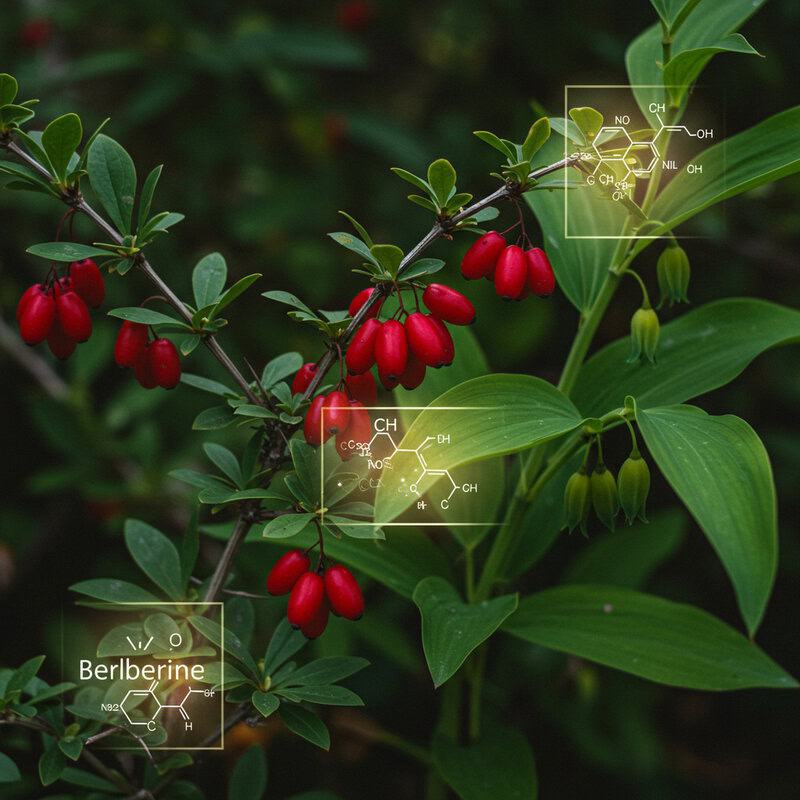
Berberine is a bioactive alkaloid found in plants such as Berberis vulgaris (barberry), goldenseal, and Oregon grape. It is well-recognized for its ability to modulate inflammatory pathways and support metabolic health. Berberine inhibits the activation of nuclear factor-kappa B (NF-κB), a central regulator of inflammation, and reduces the production of pro-inflammatory cytokines such as interleukin-6 (IL-6) and tumor necrosis factor-alpha (TNF-α) (NCBI). These actions make it a promising supplement for chronic inflammatory conditions.
Clinical research has shown that berberine is effective in improving blood sugar control, insulin sensitivity, and lipid profiles in individuals with type 2 diabetes and metabolic syndrome. Some studies suggest its efficacy is comparable to standard oral diabetes medications. Berberine also exerts protective effects on the gut by enhancing the integrity of the intestinal barrier and reducing inflammation in cases of inflammatory bowel disease (IBD) and other digestive disorders (NCBI).
Berberine supplements are typically taken in doses of 500 mg two to three times daily, with meals. While generally safe, gastrointestinal discomfort may occur in some individuals. Because berberine can interact with medications and lower blood sugar, medical supervision is recommended during use.
40. White Willow Bark

White willow bark, derived from the Salix alba tree, has a long history of use as a natural remedy for pain and inflammation. Its primary active compound, salicin, is a natural precursor to acetylsalicylic acid (aspirin). Once ingested, salicin is converted in the body to salicylic acid, which exerts anti-inflammatory and analgesic effects by inhibiting cyclooxygenase (COX) enzymes involved in the synthesis of pro-inflammatory prostaglandins (NCBI).
Historically, willow bark was used by ancient Egyptians, Greeks, and Native Americans to treat headaches, fever, and inflammatory conditions. Today, it remains a popular natural alternative for managing back pain, osteoarthritis, and other musculoskeletal issues. Modern clinical studies support its efficacy, showing that standardized willow bark extracts can reduce pain and inflammation similarly to low-dose aspirin, but often with fewer gastrointestinal side effects (Mount Sinai).
White willow bark is available in capsule, tablet, and tea forms, with typical daily doses ranging from 120 to 240 mg of salicin. While generally safe for short-term use, it should be avoided by individuals with aspirin allergies, bleeding disorders, or those taking anticoagulant medications. Consulting a healthcare professional before use is advisable.
41. Rosehip

Rosehip, the fruit of the wild rose plant (Rosa canina), is celebrated for its high content of vitamin C and a variety of polyphenols, including flavonoids and galactolipids. These compounds are powerful antioxidants that help combat oxidative stress, reduce inflammation, and protect joint tissues from damage (NCBI). Vitamin C in rosehip supports immune function and collagen synthesis, both of which are important for joint health and the maintenance of connective tissue.
Evidence from clinical studies indicates that rosehip supplementation can help reduce pain, stiffness, and the need for pain medications in individuals with osteoarthritis and rheumatoid arthritis. The anti-inflammatory properties of rosehip are believed to stem from both its antioxidant activity and its ability to suppress the production of inflammatory mediators such as C-reactive protein (CRP) and interleukin-6 (IL-6) (NCBI).
Rosehip is available in various supplement forms, including capsules, powders, and teas. Typical dosages range from 500 mg to 2,500 mg daily, depending on the preparation and health goals. Rosehip is generally well tolerated, but individuals with known allergies to plants in the Rosaceae family should use caution. Consult a healthcare provider for personalized advice.
42. Pomegranate Extract
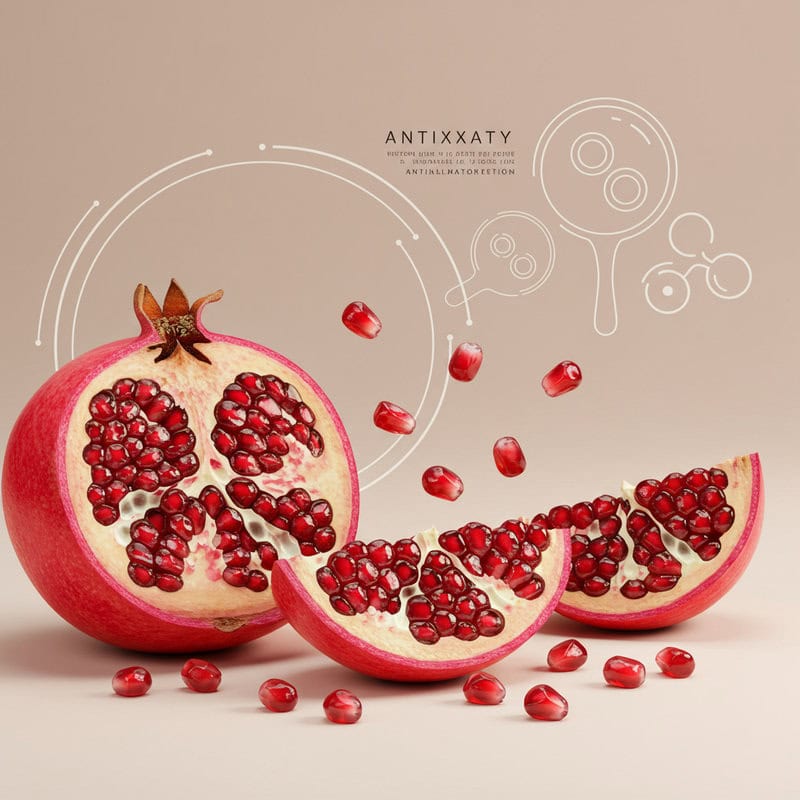
Pomegranate extract is derived from the fruit and seeds of Punica granatum and is prized for its rich concentration of polyphenols, especially punicalagins and ellagic acid. These compounds are powerful antioxidants that help neutralize free radicals and inhibit inflammatory pathways in the body. Punicalagins, in particular, have demonstrated a strong ability to suppress the activation of nuclear factor-kappa B (NF-κB), a key regulator of inflammation, while ellagic acid further supports the reduction of oxidative stress and inflammatory cytokine production (NCBI).
Cardiovascular research has highlighted the benefits of pomegranate extract in promoting heart health. Regular supplementation or consumption of pomegranate juice has been shown to improve endothelial function, reduce blood pressure, and lower markers of systemic inflammation such as C-reactive protein (CRP). Studies also suggest that pomegranate polyphenols can inhibit the oxidation of LDL cholesterol, a critical step in the development of atherosclerosis (NCBI).
Pomegranate extract is available in capsule, powder, and liquid forms. Typical dosages vary, but many supplements provide 250-1,000 mg of standardized extract daily. While generally safe, it’s wise to consult a healthcare provider before use, especially for individuals taking blood pressure or cholesterol medications.
43. Alpha-Tocopherol (Vitamin E Form)
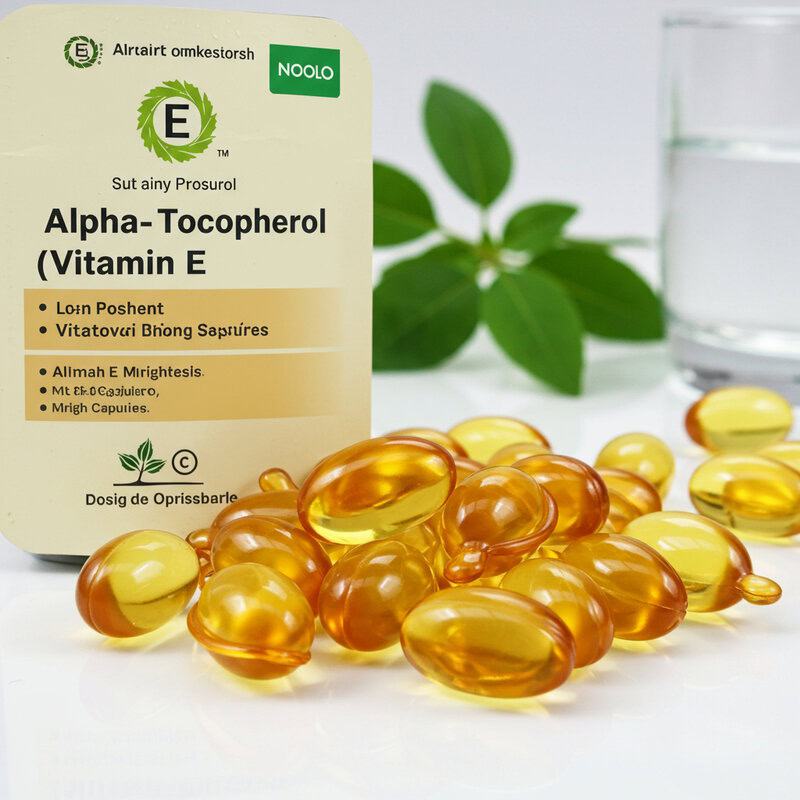
Alpha-tocopherol is the most biologically active and potent form of vitamin E, renowned for its antioxidant and anti-inflammatory properties. As a fat-soluble antioxidant, alpha-tocopherol protects cell membranes from oxidative damage by neutralizing free radicals and inhibiting lipid peroxidation—a process closely linked to chronic inflammation and degenerative diseases (NCBI). Additionally, alpha-tocopherol helps modulate the immune response and suppresses the production of pro-inflammatory mediators, such as C-reactive protein (CRP) and interleukin-6 (IL-6).
Dietary sources of alpha-tocopherol include nuts (like almonds and hazelnuts), seeds, spinach, sunflower oil, and avocados. While most vitamin E found in supplements is either natural (labeled as d-alpha-tocopherol) or synthetic (dl-alpha-tocopherol), the natural form is better absorbed and more effective at increasing tissue vitamin E levels (NIH Office of Dietary Supplements).
Supplementation strategies typically recommend 15 mg (22.4 IU) of vitamin E daily for adults, although higher doses may be used therapeutically under medical supervision. When supplementing, it’s best to take vitamin E with a meal containing healthy fats to enhance absorption. Individuals on anticoagulants or with vitamin K deficiencies should consult a healthcare professional before starting supplementation.
44. Selenium
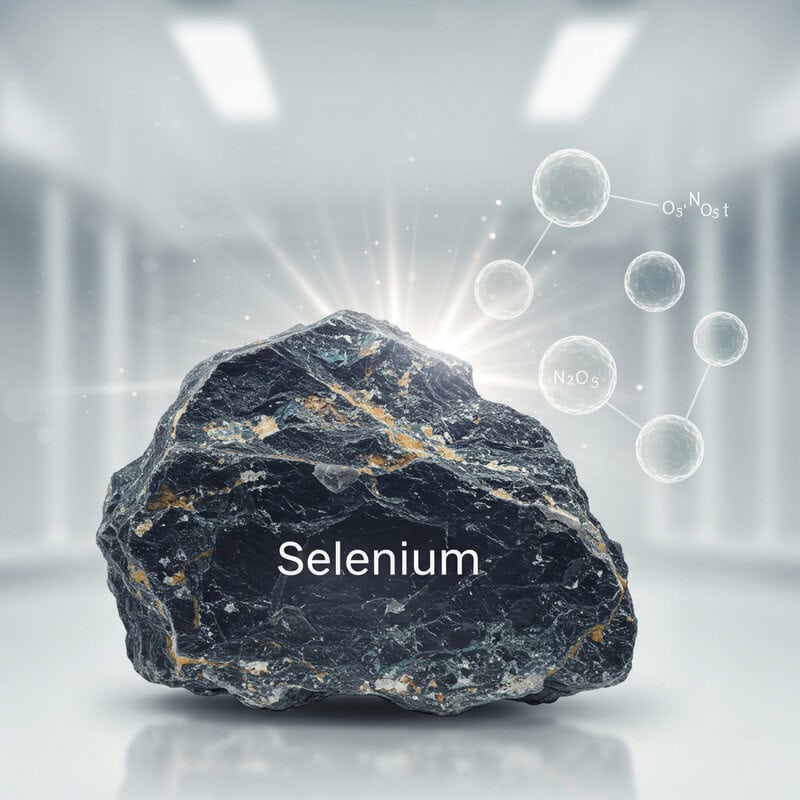
Selenium is an essential trace mineral with significant antioxidant activity, playing a crucial role in the body’s defense against oxidative stress and inflammation. It is a key component of selenoproteins, including glutathione peroxidase, an enzyme that helps neutralize harmful free radicals and reduce inflammation at the cellular level (NCBI). Selenium is particularly important for thyroid health, as it supports the production of thyroid hormones and helps regulate immune responses. Adequate selenium intake has been linked to reduced thyroid-driven inflammation, especially in autoimmune conditions such as Hashimoto’s thyroiditis and Graves’ disease.
Dietary sources of selenium include Brazil nuts (the richest natural source), seafood, eggs, sunflower seeds, and whole grains. Because selenium content in plant foods depends on soil selenium levels, intake can vary widely across different regions. While selenium is vital for health, both deficiency and excess can cause problems. The recommended dietary allowance (RDA) for adults is 55 micrograms per day, and the safe upper limit is 400 micrograms daily (NIH Office of Dietary Supplements).
Supplementation should be approached with caution, as excessive selenium can lead to toxicity, resulting in symptoms such as gastrointestinal distress, hair loss, and neurological abnormalities. Consulting a healthcare provider before starting selenium supplements is advised for safe and effective use.
45. Luteolin
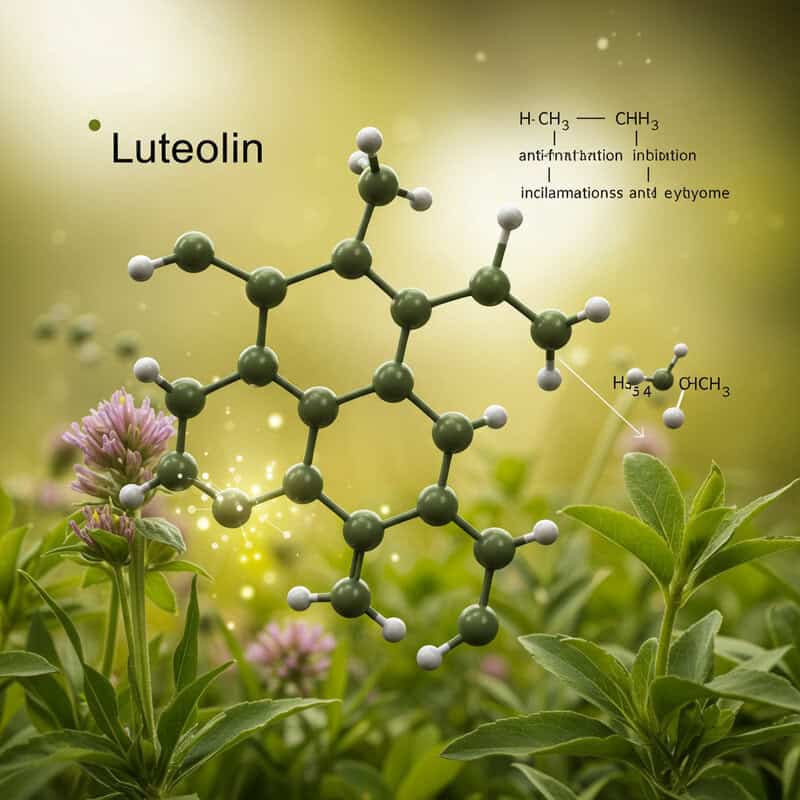
Luteolin is a naturally occurring flavonoid with a distinctive polyphenolic structure, found abundantly in many plants and noted for its strong anti-inflammatory and antioxidant effects. Luteolin exerts its anti-inflammatory action primarily by inhibiting the activity of key inflammatory enzymes, such as cyclooxygenase-2 (COX-2) and inducible nitric oxide synthase (iNOS). It also suppresses the release of pro-inflammatory cytokines, including tumor necrosis factor-alpha (TNF-α) and interleukin-6 (IL-6), thereby interrupting key signaling pathways involved in chronic inflammation (NCBI).
Plant sources rich in luteolin include celery, green peppers, parsley, thyme, chamomile tea, carrots, and olive oil. Consuming a diet abundant in fruits, vegetables, and herbs can help boost luteolin intake and support the body’s natural anti-inflammatory defenses. However, for those seeking higher or more consistent doses, luteolin supplements are available in capsule or tablet form.
Supplemental doses of luteolin typically range from 50 to 200 mg per day, but optimal amounts may vary depending on individual needs and health conditions. Luteolin is generally well tolerated, though mild digestive upset may occur in some individuals. As with other flavonoids, it’s best to consult a healthcare provider to discuss appropriate use and possible interactions with medications.
46. Melatonin
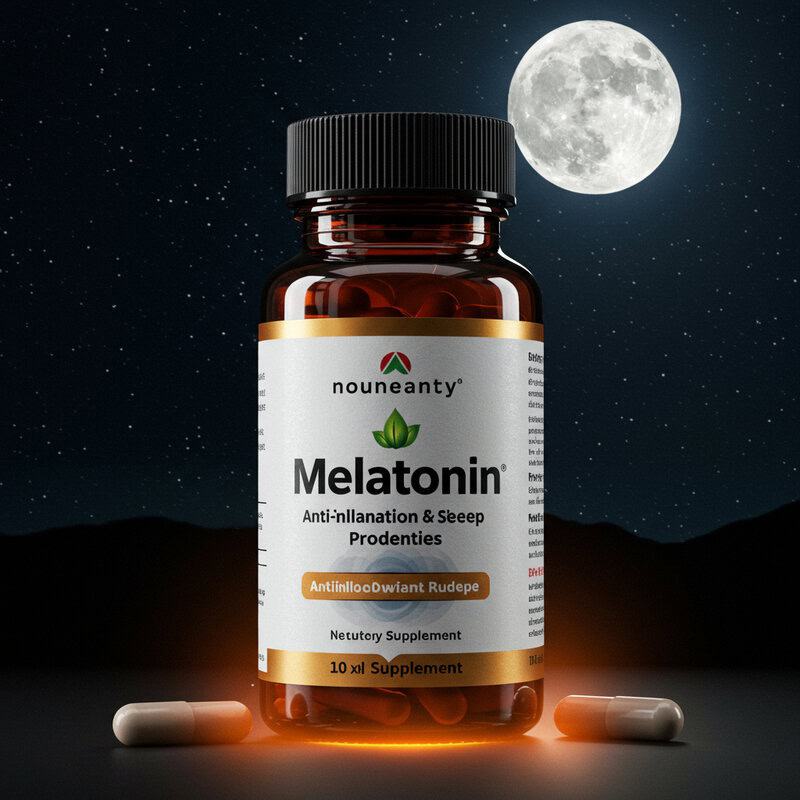
Melatonin is a hormone best known for its role in regulating sleep-wake cycles, but it also possesses powerful anti-inflammatory and antioxidant properties. Beyond supporting circadian rhythm, melatonin helps neutralize free radicals and modulate immune responses, reducing the production of pro-inflammatory cytokines like interleukin-6 (IL-6) and tumor necrosis factor-alpha (TNF-α) (NCBI). These actions make melatonin a promising therapeutic agent for managing chronic and acute inflammatory conditions.
Recent research has highlighted melatonin’s role in protecting the brain and nervous system from neuroinflammation. Studies indicate that melatonin can decrease inflammation in the central nervous system, reduce oxidative damage to neurons, and protect against neurodegenerative diseases such as Alzheimer’s and Parkinson’s disease (NCBI). Its ability to cross the blood-brain barrier further enhances its neuroprotective potential.
Melatonin supplements are commonly used for sleep support, with typical doses ranging from 1 to 10 mg taken before bedtime. For inflammation and neuroprotection, individualized dosing and timing may be necessary. Melatonin is generally safe for short-term use, but it’s best to consult a healthcare provider before long-term supplementation, especially for those on medications or with neurological conditions.
47. Vitamin B6
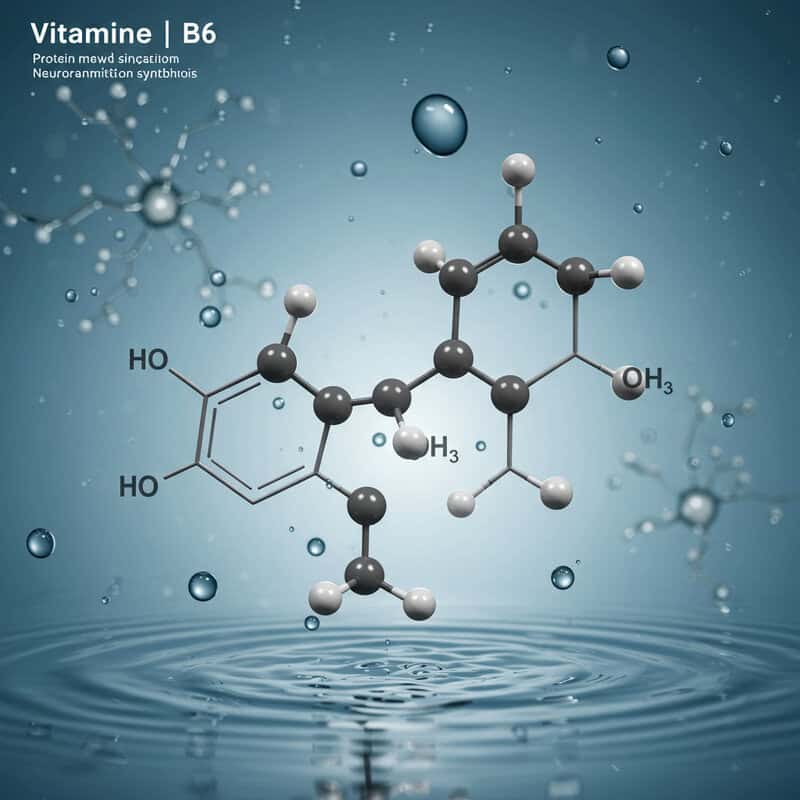
Vitamin B6, also known as pyridoxine, is a water-soluble vitamin essential for numerous biochemical processes, including protein metabolism, neurotransmitter synthesis, and immune function. Research shows that vitamin B6 plays a significant role in modulating the immune response and controlling inflammation. It helps regulate the production of cytokines, supports the synthesis of antibodies, and influences the activity of lymphocytes and other immune cells. Low levels of vitamin B6 have been associated with increased levels of inflammatory markers such as C-reactive protein (CRP) (NCBI).
Deficiency in vitamin B6 is relatively common, especially among older adults, individuals with kidney disease, alcohol dependence, or certain autoimmune conditions. Symptoms of deficiency may include irritability, depression, weakened immune function, and anemia. Because vitamin B6 is not stored in large amounts in the body, regular dietary intake is crucial.
Food sources rich in vitamin B6 include poultry (such as chicken and turkey), fish (salmon and tuna), potatoes, chickpeas, bananas, fortified cereals, and leafy green vegetables. The Recommended Dietary Allowance (RDA) for adults ranges from 1.3 to 2.0 mg per day, depending on age and gender. While vitamin B6 supplements are available, most people can meet their needs through a balanced diet.
48. Lycopene

Lycopene is a powerful carotenoid antioxidant responsible for the vibrant red color of tomatoes, watermelon, pink grapefruit, and other fruits. Its antioxidant action helps neutralize free radicals and reduce oxidative damage, which in turn lowers inflammation throughout the body. Research has shown that lycopene is especially beneficial for prostate health, with studies linking higher lycopene intake to a reduced risk of prostate cancer and improvements in markers of inflammation within the prostate gland (NCBI).
Lycopene also promotes cardiovascular health by preventing the oxidation of LDL cholesterol, reducing arterial inflammation, and supporting healthy blood vessel function. Regular consumption of lycopene-rich foods has been associated with lower risks of heart disease and hypertension (NCBI).
While lycopene is available in supplement form, research suggests that dietary sources may offer superior bioavailability, particularly when consumed with healthy fats that enhance absorption. Cooked tomato products, such as tomato sauce and paste, provide especially high levels of lycopene. Other good sources include watermelon, pink grapefruit, guava, and papaya. For most people, a diet rich in these foods is the best way to obtain lycopene’s anti-inflammatory and antioxidant benefits.
49. Echinacea

Echinacea is a genus of flowering plants native to North America, widely used for its immune-modulating and anti-inflammatory properties. The primary active compounds in echinacea—such as alkamides, caffeic acid derivatives, and polysaccharides—work together to enhance the activity of immune cells and regulate inflammatory responses. These phytochemicals can inhibit the production of pro-inflammatory cytokines and support the body’s natural defenses against pathogens (NCBI).
Research on echinacea’s effectiveness in preventing or treating the common cold and flu is mixed but promising. Some studies suggest that echinacea supplements may reduce the duration and severity of respiratory infections, particularly when taken at the onset of symptoms. Echinacea may also help lower the risk of developing upper respiratory tract infections in people under physical or environmental stress (NCBI).
Echinacea is available in various forms, including teas, tinctures, capsules, and extracts. For practical use, it is commonly recommended to start supplementation at the first sign of illness and continue for up to 7-10 days. While generally safe, individuals with allergies to plants in the daisy family or autoimmune diseases should consult a healthcare provider before use.
50. Polyphenols (General)

Polyphenols are a diverse group of naturally occurring compounds found abundantly in fruits, vegetables, herbs, tea, coffee, wine, and dark chocolate. These plant-based phytochemicals—including flavonoids, phenolic acids, lignans, and stilbenes—are renowned for their potent antioxidant and anti-inflammatory effects. Polyphenols help modulate inflammation by inhibiting the activity of pro-inflammatory enzymes (such as cyclooxygenase and lipoxygenase) and reducing the production of cytokines like tumor necrosis factor-alpha (TNF-α) and interleukin-6 (IL-6) (NCBI).
Numerous studies link high dietary polyphenol intake to lower risks of chronic diseases, including cardiovascular disease, diabetes, neurodegenerative disorders, and certain cancers. Polyphenols also support gut health by acting as prebiotics and enhancing the growth of beneficial gut bacteria, which further aids in regulating systemic inflammation (NCBI).
To increase polyphenol intake, focus on a colorful, plant-rich diet. Prioritize berries, apples, citrus fruits, leafy greens, onions, nuts, seeds, whole grains, green tea, and even moderate amounts of red wine or dark chocolate. Eating a variety of these foods daily ensures exposure to a broad spectrum of polyphenols, optimizing their cumulative anti-inflammatory benefits for overall health.
Conclusion
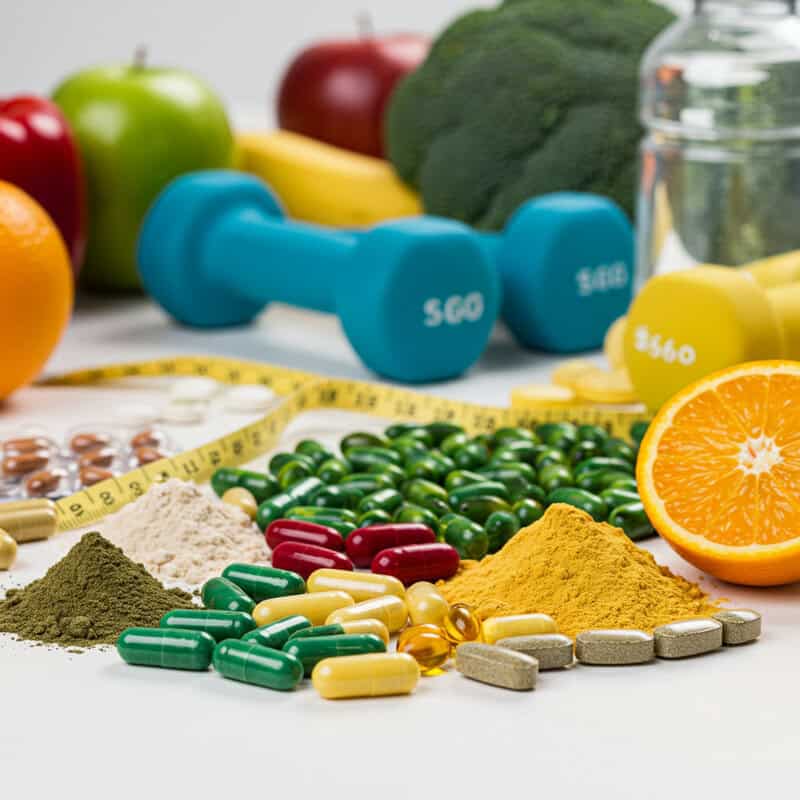
Addressing chronic inflammation is essential for maintaining long-term health and reducing the risk of a wide range of diseases. While numerous natural supplements show promise in supporting the body’s anti-inflammatory defenses, they are most effective when combined with a balanced diet and healthy lifestyle. Supplements can play a valuable role, but they are not a substitute for medical care or dietary improvements. It is important to recognize individual differences, potential interactions, and the need for proper screening. Consulting a healthcare professional for personalized advice and regular monitoring is strongly recommended (CDC), ensuring a safe and effective approach to inflammation management tailored to your unique health needs.
Disclaimer
The information provided in this article is for general informational purposes only. While we strive to keep the information up-to-date and correct, we make no representations or warranties of any kind, express or implied, about the completeness, accuracy, reliability, suitability, or availability with respect to the article or the information, products, services, or related graphics contained in the article for any purpose. Any reliance you place on such information is therefore strictly at your own risk.
In no event will we be liable for any loss or damage including without limitation, indirect or consequential loss or damage, or any loss or damage whatsoever arising from loss of data or profits arising out of, or in connection with, the use of this article.
Through this article you are able to link to other websites which are not under our control. We have no control over the nature, content, and availability of those sites. The inclusion of any links does not necessarily imply a recommendation or endorse the views expressed within them.
Every effort is made to keep the article up and running smoothly. However, we take no responsibility for, and will not be liable for, the article being temporarily unavailable due to technical issues beyond our control.





